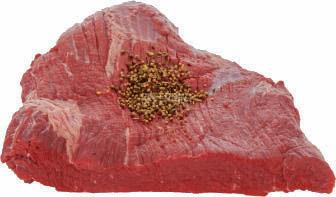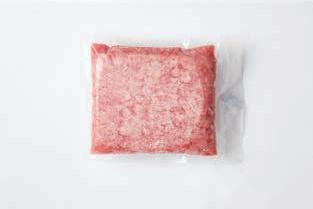Bad company
ICC bid to arrest Bibi and Gallant (together with Hamas killers) is broadly condemned
By The Jewish Star, JNS and combined sources
The US and many of its allies were quick to criticize plans by the International Criminal Court’s chief prosecutor to seek arrest warrants for Israel’s Prime Minister Benjamin Netanyahu and Defense Minister Yoav Gallant, as well as for Yahya Sinwar and other Hamas leaders.
President Joe Biden called Karim Khan’s announcement “outrageous.”
“Let me be clear: whatever this prosecutor might imply, there is no equivalence — none — between Israel and Hamas. We will always stand with Israel against threats to its security.”
Secretary of State Anthony Blinken said the circumstances of Khan’s announcement on Monday — made on CNN and not in an official notification to the parties involved — “call into question the legitimacy and credibility of this investigation.”
Washington “fundamentally rejects” Monday’s announcement, Blinken said. “We reject the prosecutor’s equivalence of Israel with Hamas. It is shameful. Hamas is a brutal terrorist organization that carried out the worst massacre of Jews since the Holocaust and is still holding dozens of innocent people hostage, including Americans.”

Things are pretty aw ful US college trauma is the new Jewish reality
 By Ed Weintrob
By Ed Weintrob
Life for Jewish students on American campuses is as bad as you’ve heard — maybe worse — members of the collegiate universe told a Touro University Law School forum.
Oren Gross, associate dean of the University of Minnesota Law School, asked rhetorically whether the demonstrators were engaging in peaceful protest and an expression of free speech.
“This is anything but peaceful,” he said. “There’s hateful, threatening rhetoric and threatening actions,” including praise for the Intifada — “as we all know, in the two previous Intifadas, thousands of Israeli civilians lost their lives in acts of terror” — and declaring, under an image of an armed figure, “death to Zionism by any means necessary. Especially in the aftermath of Oct. 7th, there is no mistaking in what that actually means.”
“There are peaceful protests in different places. What’s happening in universities in the US is not,” said Miri Bar-Halpern, director of outpatient treatment service at the Boston Child Student Center and a clinical instructor of psychology at Harvard Medical School, who spoke about “traumatic invalidation.”
“That’s what happened to me after Oct. 7th,”
By Ed Weintrob
In a community with much affluence, there are “Jews who die penniless and alone,” Riverdale’s annual benefit for the Hebrew Free Burial Association was told.
Just since Jan. 1 this year, final rites were arranged for 105 such Jews by the HFBA, with each treated “with dignity and respect,” Executive Director Amy Koplow told a breakfast gathering at the Riverdale Jewish Center.
“Many don’t have $11,000 plus for a funeral and burial in a Jewish cemetery.”

Abby Marcus (pictured), who teamed up with HFBA ten years ago when she was recruited onto its young leadership team, was presented with the Lev HaOlam Award for her work in collecting and shipping urgently needed supplies to members of the IDF in the months following Oct. 7.
“It wasn’t just the cash raised, or the duffle bags — hundreds, thousands — she sent to Israel — there was something about Abby’s process, the community that she built representing all of Riverdale, the relationships that she built at JFK airport, at Ben Gurion airport,” said RJC’s Rabbi Dovid Zirkind.
See Chesed on page 4

May 24, 2024 Behar • 16 Iyyar 5784 • Vol 23, No 18 TheJewishStar.com Publisher@TheJewishStar.com • 516-622-7461
NY’s Trusted Jewish Newspaper • Honest Reporting, Torah-True Chesed Shel Emet Riverdale toasts Hebrew Free Burial Assoc.
The
Prime Minister Benjamin Netanyahu and Defense Minister Yoav Gallant hold a press conference at the Ministry of Defense in Tel Aviv, Oct. 28, 2023. Dana Kopel, Pool
Jewish Star will not publish next week. We will return, B”H, with our pre-Shavuot issue on Wednesday, June 5.
See ICC prosecutor’s action on page 6
See Touro panel on page 4



1258113










































































THE JEWISH STAR May 24, 2024 • 16 Iyyar 5784 3 Keilim Mikveh on Premises | Pre-Shabbos Buffet Every Thursday & Friday! Savings Plaza | 11 Lawrence Lane, Lawrence, NY | (516) 371-6200 | info@kolsavemarket.com | /kolsavemarket Hours: Sunday-Tuesday: 7am-8pm | Wednesday: 7am-10pm | Thursday: 7am-11pm | Friday: 7am-5pm TM We reserve the right to limit quan��es. No rain checks. Not responsible for typographical errors. More for Less much Prices Good Sunday, May 26th through Friday, May 31st, 2024 SIGN UP TO RECEIVE OUR WEEKLY SPECIALS AT KOLSAVEMARKET.COM! Hass Avocados 5/$5 Crispy Kirbies $119 LB Italian Kiwi 5/$2 Minute Roast $699 LB Rack of Ribs $999 LB Dark Chicken Cutlets $599 LB Small Kolichel $699 LB Green Scallions 4/$2 Frozen Tuna Steaks 99 LB Boneless Rib Eye Steak $849 LB Seasoned Beef Arayas $699 LB Whole or Cut-Up Chicken $239 LB Semi-Boneless Fillet Steak Family Pack 999 LB Seared Tuna Tray $1699 EA Avenue A Flour All Purpose or Unbleached 99 5 LB Tuscanini Mini Gnocchi $199 16 oz Coffee Mate Creamers Assorted $349 32 oz Rokeach Memorial Tins 1 Day 3/$1 Concordia Penne & Orzo 3/$1 16 oz Bowl & Basket Lasagna Curly or Oven Ready $149 12 oz/16 oz Gefen Puff Pastry Squares 10 Pack $299 12.3 oz YoCrunch Yogurts 4 Pack $299 16 oz Givat Yummy Kids Yogurts Assorted 2/$1 4 oz Pardes Chopped Spinach $449 24 oz Farms Creamery Margarine 2/$3 16 oz Tropicana Orange Juice $599 89 oz Gefen Mini Mandel 49 14 oz Bowl & Basket Graham Crackers $249 14.4 oz Ortega Mini Tacos 18 Pack $249 McCain French Fries Assorted $249 19 oz/32 oz Fresh & Healthy Whipped Cream Cheese 2/$5 8 oz 9” Round Foil Pans 8/$1 Hecker’s Flour $299 5 LB Snapple Iced Teas Assorted $149 64 oz Bowl & Basket Sugar $299 4 LB Lieber’s Graham Pie Shells $129 6 oz Imperial Canola Oil $529 96 oz Fresh & Healthy Co�age Cheese 2/$5 16 oz Roasted Cashews $599LB Mango Cheeks $949LB Pastrami or Turkey Wraps $699 EA Cole Slaw Regular or Diet $599 lb Rokeach Tea Lights 100 Pack $399 Je�oil 8“ Square Pans 5 Pack 79¢ KoSure Shredded Cheese 799 32 oz 1257268
PA: Oct. 7 times 100 Touro panel talks college hate…
A Palestinian Authority official warned on social media over the weekend that the Oct. 7 massacre could “repeat itself 100 times, and perhaps even more seriously.”
According to the Palestinian Media Watch research institute, PA leader Mahmoud Abbas’s religious affairs and Islamic relations adviser, Mahmoud al-Habbash, posted the threat on his Facebook page on Saturday.
The post, translated from Arabic by PMW, reads in full: “If the Palestinian cause is not justly, comprehensively and permanently resolved, at least on the basis of international legitimacy, at least on the basis of the UN resolutions, then Oct. 7 can repeat itself 100 times, and perhaps even more seriously.”
Last fall, in his first public statement after Hamas invaded Israel, terrorist Yahya Sinwar threatened multiple repeat performances.
“The leaders of the occupation [Israel] should know, Oct. 7 was just a rehearsal,” Sinwar said.
“Yahya Sinwar is the face of evil. He is the mastermind behind this, like [Osama] bin Laden was,” said Israel Defense Forces International Spokesperson Lt. Col. Richard Hecht. “He built his career on murdering Palestinians when he understood they were collaborators. That’s how he became known as the butcher of Khan Yunis [in southern Gaza].”
Simwar as convicted on multiple murder counts by an Israeli court and sentenced to five life sentences, which he was supposed to serve until his death, but in October 2011 he was released from prison — having served only 22 years — as part of the Gilad Shalit prisoner exchange.




Continued from page 1
Universities should do their jobs and protect their students, she continued. “If I had a kid in college right now, I want this kid to be protected. I want my kid to be able to go to the library, to study for their tests to feel safe in their dorms and not to be scared to be leaving the house.”
Talia Segal, who completed studies in biomedical engineering at Georgia Institute of Technology, and a leader of the school’s Hillel, said although that campus was relatively peaceful, “even here, we saw protests where Hamas and Hezbollah were praised. And I think we shrugged it off, because we knew that things could be so much worse — but to have to kind of be okay with that is pretty absurd, I think.”
While Jewish students at George Tech did not feel physically unsafe, “a lot of us are just kind of constantly on edge, we’re not really sure who we can talk to,” Segal said. “We’ve been pushed out of certain other communities where we once found peace and friendships. For example, in the
queer community, there was a big argument in the group chat about Zionism — and it was it was very othering for me and several my friends. Having to kind of pick and choose between our communities is really frustrating and harmful.”
Columbia Law School graduate Marie-Alice Legrand, founder and president of Law Students Against Antisemitism who is a native of Germany, said “the situation at Columbia is constantly deteriorating.”
“We have been observing a very steady normalization of violence in the form of words, but also in the form of actual physical violence and harassment,” said said.
“The protests that we’ve been observing created an environment that was so hostile, that even I who I’m not Jewish, have not felt safe to go to campus. They outright supported Hamas, without any ambiguity, they were showing pictures of the Hamas logos on the phones. And they sang those chants literally call for genocide.
“One more thing that we’ve seen,” Gross of Minnesota added, “even if there is a recognition
that some sort of antisemitism took place, it is treated as low on the hierarchy of offense.
“The subjection, if you will, of antisemitism, to perceived higher forms of offense was made clear in a statement by a professor at my university, a candidate for the position of associate dean for DEI in the College of Liberal Arts, who called into question the rape of Israeli women and girls by Hamas terrorists — because it was racist, to say that Hamas, that is men of color, committed rape.
“Forget #metoo, ignore #webelieveyou, because those do not apply to Israeli and Jewish women because there are, if you will, bigger offenses involved and regardless, we support by all means necessary and by all means necessary, also involves rape.”
The Touro event was hosted by Samuel J. Levine, professor of law and director of the Jewish Law Institute, and moderated by Dr. Alan Kadish, president of Touro University.
“Some of our audience members were hoping that we could close on a sense of optimism, hope for the future,” Levine said. Maybe next year, she added.
Chesed Shel Emet in Riverdale…
Continued from page 1 she said. “I was denied my right to grieve.”
Marcus’ undertaking was an “incredible mission” that deepened our bond with Israel, he said, calling it incredible work for am Yisrael.”
Recounting her work with HFBA a decade ago, Marcus asked, “How do you get the next generation to care about concepts that are off their radar? How do you get the next generation to care about concepts that are off their radar?”
The young leadership group successed, she said. “At the end of the day, it doesn’t matter if we know one another to help one another.”





HFBA insures that every Jew, regardless of affiliation, receives a proper halachic burial.
“In times of need, a Jew is a jew and we show up” Koploaw said.
“Jews who die penniless may die alone,” said explained. “Without family to claim body in New York City, remains are stored in a medical examiner’s morgue. Your name goes on a list in a national database of unclaimed dead. Months usually pass until burial.”
HFBA checks the data several times a week and pursues cases that might be Jewish, hunting
for clues about these forgotten people’s lives.”
“Once confirming Jewish without family “we then must deal with the NYC bureaucracy to get these cases released for burial,” Koplow said, reporting that there are now nine open cases, two more than a year ago.
“Without HFBA’s hard work, these Jewish decedants would be sent to burial in mass graves in city cemetery [on Hart Island] where 1.800 go each year.
“With your help, city cemetery need not be the fate of any Jew in our city.”

May 24, 2024 • 16 Iyyar 5784 THE JEWISH STAR 4 1255685 1258127


THE JEWISH STAR May 24, 2024 • 16 Iyyar 5784 5 1257945
ICC prosecutor’s action widely condemned…
Continued from page 1
Khan should have allowed “the Israeli legal system a full and timely opportunity to proceed” with its own “ongoing investigations into allegations against its personnel,” Blinken said.
He warned that Khan’s action could “jeopardize ongoing efforts to reach a ceasefire agreement” between Israel and Hamas that would see the release of the remaining 128 hostages.”
The charges against Netanyahu and Gallant will include “causing extermination, causing starvation as a method of war, including the denial of humanitarian relief supplies [and] deliberately targeting civilians in conflict,” Khan told CNN‘s Christiane Amanpour.
Charges against Hamas terrorist leader Yahya Sinwar, chief Ismail Haniyeh and Al-Qassam Brigades armed wing head Mohammed Deif will include “extermination, murder, taking of hostages, rape and sexual assault in detention,” he said.
“Mr. Khan creates a twisted and false moral equivalency between the leaders of Israel and the henchmen of Hamas,” Netanyahu said in a video posted to social media on Monday.
“With what audacity do you dare to make a comparison between Hamas — which murdered, burned, butchered, raped, and kidnapped our brothers and sisters — and the IDF soldiers who are fighting a just war that is unparalleled, with a morality that is unmatched?” he continued.
If the court in The Hague greenlights the warrants, it would constitute an “unprecedented antisemitic hate crime,” Netanyahu warned last month after reports surfaced of Khan’s intentions. “Eighty years after the Holocaust, the international bodies established with the goal of preventing another Holocaust are considering denying the Jewish state its right to defend itself.”
Netanyahu noted that this marks the first time that a democratic country committed to international law is defending itself from accusations of war crimes while at the same time facing existential threats.
“The State of Israel is proud of its soldiers and commanders, and the values they represent,” Gallant said on Monday. “As minister of defense, I stand with, support and commend our troops, who are defending our people and fulfilling the extraordinary privilege and obligation of defending ourselves, by ourselves.”
Israel’s Foreign Ministry will set up a “special command center” to fight any move by the International Criminal Court to issue arrest warrants against Israel’s top leaders, Foreign Minister Israel Katz announced.
In a statement published following the CNN interview, Khan’s office said he had “reasonable grounds to believe” that Netanyahu and Gallant bear criminal responsibility for “war crimes and crimes against humanity” committed since Oct. 8, 2023, the day after Hamas terrorists massacred 1,200 people, mostly civilians, inside Israel.
A panel of three justices from the ICC’s PreTrial Division will now consider Khan’s application for the arrest warrants.
Great Britain, the Czech Republic, and Austria immediately spoke out against the issue of equivalency.
Czech Prime Minister Petr Fiala said it was “appalling and completely unacceptable” to do so.
“We must not forget that it was Hamas that attacked Israel in October and killed, injured, and kidnapped thousands of innocent people. It was this completely unprovoked terrorist attack that led to the current war in Gaza and the suffering of civilians in Gaza, Israel, and Lebanon,” he said.
Austrian Chancellor Karl Nehammer said that the fact “that the leader of the terrorist organization Hamas — whose declared goal is the extinction of the State of Israel — is being mentioned at the same time as the democratically elected representatives of that very State is non-comprehensible.”
A spokesperson for British Prime Minister Rishi Sunak stated this action does not help the goal of “pausing the fighting, getting hostages out or getting humanitarian aid in” as he rejected the court’s jurisdiction in the matter.


Italy’s Foreign Minister Antoni Tajani decried the announcement as seemingly putting Israel and Hamas’ leaders on equal footing. “It seems extraordinary to me, I would say unacceptable, to equate a legitimately elected government in a democracy with a terrorist organization which is the cause of everything happening in the Middle East,” he said.
German Foreign Minister Annalena Baerbock expressed a similar sentiment.
France took a different view.
“We support the International Court of Justice, its independence and the fight against impunity in any situation,” said the French foreign minister, Stéphane Séjourné.
Israel has not heeded warnings regarding “the need for strict compliance with international humanitarian law, and in particular...the unacceptable level of civilian casualties in the Gaza Strip and inadequate humanitarian access,” he added.
Congressional reaction on Monday was swift.
Senate Majority Leader Chuck Schumer called the ICC prosecutor’s action “unfair and reprehensible.”
As disappointing as the ICC’s decision is, it comes as no surprise because for decades the ICC has shown it harbors deep biases against Israel. This decision suggesting an equivalency between Israel and Hamas is another glaring example,” New York’s senior senator said in a speech on the Senate floor.
“As I have said many times, there has never been — and there never can be — any equivalency between Israel’s right to defend itself against terror and Hamas’s barbarity. The ICC’s decision seeking warrants against Israeli leaders is not only shameful but also fails to follow protocol and process in a country where it has zero jurisdiction.
New York’s junior senator, Kirsten Gillibrand, the ICC action was “absolutely disgraceful” and would “hamper efforts to reach an agreement that would release hostages and pause hostilities.”
“Israel is not a member of the ICC and therefore the ICC has no jurisdiction. The decision to seek arrest warrants is not law but politics,” wrote Rep. Ritchie Torres (D-NY). “It is not justice but rather retribution against Israel for the original sin of existing as a Jewish state and the subsequent sin of defending itself amid the deadliest day for Jews since the Holocaust.”
The ICC decision “in effect makes it criminal for a state like Israel to defend itself against an enemy shrewd enough to embed itself in a civilian population, as Hamas has done to an extent never seen before in the history of warfare,” Torres said.
“But for Oct. 7 and Hamas’s unprecedented militarization of its own civilian population and infrastructure, there would be no war in Gaza
and no humanitarian crisis among Gazans,” Torres added. “Hamas is the cause of everything tragic that has ensued and Hamas alone should be the target of criminal prosecution.”
Rep. Marc Molinaro (R-NY) called the decision “a mistake” that “will forever damage the credibility of the ICC.”
“There can be no equivocation,” Molinaro wrote. “Prime Minister Netanyahu is the leader of a democracy and is defending Israel’s right to exist following the horrific Oct. 7 attacks. Hamas is a terrorist organization responsible for the deaths of thousands of Israelis and Palestinians.”
“While Israel delivers aid and protects innocent lives, Hamas terrorists take hostages and use children as shields and hospitals as armories,” wrote Sen. Rick Scott (R-Fla.). “The ICC has embarrassed itself with these sham charges against Israel’s leadership. America stands with Israel.”
Analysts interviewed by JNS voiced offered broad agreement that Israel should take a tough stance against the court, including imposing sanctions.
Avi Bell, a law professor at the University of San Diego and at Bar-Ilan University in Ramat Gan, said that Israel should “immediately implement an aggressive strategy of non-cooperation.”
Israel should not cooperate, nor allow any citizen to cooperate, with the court. “Don’t allow anybody to go abroad to talk to them,” he said. “It’s perfectly fair given the ICC is threatening Israelis with false imprisonment and false prosecution, that it’s actively collaborating with a terrorist organization in lawfare against Israel.”
To date, Israel has pursued the opposite strategy, said Bell, sharply criticizing the Foreign Ministry and State Attorney’s Office, which have collaborated with the ICC for years.
“Just a few months ago, they invited the ICC prosecutor’s team to Israel to interview witnesses, collect evidence and coordinate with the PLO in Ramallah, which is simply unthinkable to me. I just don’t understand how anybody could be so foolish,” he told JNS.
Given their track record, officials at the Foreign Ministry and attorney general’s office are the last people that Bell said he would want to handle ICC strategy going forward.
“No matter what happens, no matter how much the strategy fails, they just don’t stop,” he said. “They keep going in the same direction.”
Israel should impose sanctions and pass legislation against the ICC similar to what America did, he said.
Eugene Kontorovich, head of the international law department at the Kohelet Policy Forum, agreed, telling JNS, “Israel must refuse any cooperation with the ICC, and pass a law similar to
the US Armed Service Members’ Protection Act [ASPA], barring cooperation with the ICC, and allowing all measures to be taken against any of its officials or member states that work to arrest Israeli nationals.”
Congress passed ASPA in 2002 because it feared that the ICC would be used as a political weapon against American soldiers.
The law was dubbed the “Hague Invasion Act,” as it authorized the president “to use all means necessary” to release US and allied personnel “held captive by, on behalf, or at the request of the court,” raising the specter of an extreme scenario in which the United States would send troops to invade Holland to free its service members.
Kontorovich also urged that the United States impose sanctions similar to those imposed by former President Donald Trump via an executive order in 2020 that targeted assets and imposed entry bans on ICC officials and their families. Trump’s move came as the court debated whether to open an investigation into alleged US war crimes in Afghanistan.
“They [sanctions] work. The ICC bureaucrats want Israel to fight Hamas with both hands tied behind its back, but personally they are cowards,” said Kontorovich.
Human Rights Attorney Arsen Ostrovsky, CEO of the International Legal Forum and senior fellow at the Jerusalem-based Misgav Institute for National Security, agreed that US sanctions should be re-imposed on the ICC. (President Joe Biden revoked Trump’s executive order in April 2021).
“ Congress should unleash a hailstorm of sanctions against prosecutor Khan and the ICC for this egregious and unforgivable action,” he said.
Israel also should hold the Palestinian Authority to account in its encouragement of the ICC, Ostrovsky said.
“The PA must also be made to understand that they cannot continue to engage in this relentless lawfare against Israel, whether at the ICC or the International Court of Justice, without consequences,” he said, listing withholding of tax revenues and punitive diplomatic measures as potential options.
Bell also suggested that the PA.be targeted, noting that the ICC’s “been cooking up charges against Israelis in cooperation with the PLO since 2009.”
The ICC has no jurisdiction in Israel as Jerusalem is not a signatory to the Rome Statute, which established the court. The ICC has “cooked up” jurisdiction by accepting the “State of Palestine,” which does not exist, as a signatory in 2015, Bell said, noting that the PLO had no authority to become a signatory and it was contrary to its agreements with Israel.
May 24, 2024 • 16 Iyyar 5784 THE JEWISH STAR 6
Yahya Sinwar, leader of Hamas in the Gaza Strip, at a rally in Beit Lahiya on May 30, 2021.
Atia Mohammed, Flash90
• • •
Prime Minister Benjamin Netanyahu in Jerusalem on March 31. Marc Israel Sellem, Pool



A CLEAN SLATE FOR LAWRENCE!




VOTE the Ticket of Nahmias, Felder & Gottesman FOR a fresh vision for Lawrence.




NEW leadership for a better way forward










1257382 THE JEWISH STAR May 24, 2024 • 16 Iyyar 5784 7
Five Towns 5K will aid disabled Israeli vets
By Melissa Berman, LI Herald
Grab your running shoes, the 15th annual Beit Halochem International Five Towns 5K begins on Sunday, June 9 in North Woodmere Park, with the starter’s pistol firing at 10 am, sharp. Proceeds benefit disabled Israeli military veterans through the US-based Friends of Israel Disabled Veterans. Beit Halochem International is the only organization in the United States devoted exclusive to raising money for the rehabilitation of wounded Israeli veterans
Isaac Seinuk — co-chair of Beit Halochem USA-Friends of Israel Disabled Veterans — founded this race in 2009 with the support and sponsorship of the Maidenbaum Property Tax Reduction Group.
“Running a community-based organization for over 35 years, we believe in ‘for the commu-
nity, from the community,’ and our community is well-known for supporting Israel and Israeli causes,” said Shalom Maidenbaum, founding and managing member of the property tax group. “In these challenging and faithful times both for the state of Israel and American Jewry, it is imperative that we all do our part for the community here and in Israel.”
Maidenbaum helped get the race off the ground and supported Seinuk, serving as the “father” of the event.
The 5K starts in North Woodmere Park, making its way through the local streets of North Woodmere with major stretches on Cliffside Avenue and Flanders Drive — along with a path through Nutley Place, Glenridge Avenue, Mulberry Place, Cranford Avenue and Kilmer Lane — before ending back at the park for an
awards ceremony.
Other sponsors include Young Israel of North Woodmere, Young Israel of Woodmere, Congregation Beth Sholom, and the Hebrew Academy of Long Beach. Volunteers are provided by the Hebrew Academy of the Five Towns and Rockaway.
Beit Halochem was not well known in the United States back then, but the Five Towns 5K changed that significantly. Seinuk’s goal was to have runners return each year to help support the cause and donate.
“I felt very strongly that I wanted to do something for Friends of Israel Disabled Veterans in order to raise funds, and much more importantly, to raise awareness,” Seinuk said.
The organization was established to help assist the Zahal Disabled Veterans Organization, formed in 1949 following Israel’s War of
Silver medal for Gural JCC Maccabis
By Melissa Berman, LI Herald
cabi Team that captured the silver medal in basketball at the Mid-Atlantic Mini and Junior Maccabi Games on May 5 in Wilmington, Deleware.
Modeled after the JCC Maccabi Games, the one-day Olympic style tournament was geared for nine- to 12-years-old. The competition was hosted by the Sigel JCC Delaware.
Beginning with the opening ceremonies each team individually marching out, while singing “Hatikvah” (the Israel national anthem) and the ”Star-Spangled Banner.” Then the competition got under way with team and individual sports, and the opportunity to take part in a service project.
HALB and HAFTR sixth- and seventhgraders comprised the Gural JCC squad with Leroy Samuels the head coach and Matthew
Schein his assistant.
“We found kids that wanted to be on the team, practiced for the tournament, planned out the itinerary and drove to Delaware,” Schein said.
“This was a fun experience for us and the kids.”
The team won all three of its games and was the No. 2 seed. The squad defeated the No. 3 seed.
Though the Gural JCC lost in the championship game to the No. 1 seed, the boys had fun and appeared to enjoy this special opportunity.
“I had an amazing time at the Maccabi games, I was so excited to go and my team worked very hard together to win the silver,” said HAFTR seventh-grader Mason Schein. “It was so cool to meet people from all over and see so many people that like different sports and athletes.”
Improving their basketball skills and building up their stamina for multiple games in a short
time was the initial impact of taking part in the tournament.
“I really enjoyed playing in the Maccabi games, we played five games in one day so we were really tired,” said HALB sixth-grader Uzi Zamir.
Making new fiends and meeting people with the same interests and skill levels was also part of the experience.
“It’s such a great experience to play against kids from other states and delegation, meeting new kids and traveling to new places each year is awesome,” said HAFTR seventh- grader Michael Boriskin. “We practiced together, developed chemistry, and won second place!”
The boys’ caliber of play and the energy and sportsmanship they brought to the court is something their schools and the Marion & Aaron Gural JCC can take pride in.
Independence, according to the group’s website. There are currently four active locations in Israel with a fifth in the works.
Every year, Beit Halochem USA raises close to $30,000 from the North Woodmere event, Seinuk said, with this year’s donations expected to go even higher.
“Over the past 15 years, we’ve raised over a half a million dollars, if not more, for Friends of Israel Disabled Veterans,” he added.
The race provides needed money to help disabled soldiers receive physical rehabilitation and mental health services, especially for those who live without limbs, or are managing other permanent disabilities.
“This year, the need is multiple times more,” since the war began on Oct. 7 when Hamas terrorists invaded Israel, said Jeffrey Eisenberg, founder of the Israel Chesed Center. “We now have over 50,000 wounded soldiers from this current war.”
While runners from the Five Towns and beyond put their own bodies on the line, they recognize the sacrifices being made by the soldiers they’re looking to help, fighting for the defense of the Jewish people.
“Right before this current war, we’d helped 52,000 wounded soldiers,” said Tzvia Wexler, national developing director for Beit Halochem USA. “Unfortunately, now we had an additional 13,000 physically wounded and 15,000 to 20,000 with PTSD.”
New programs and therapy are continually added to aid the Israeli disabled veterans in ways that keep them active, healthy, and socially connected.
“The mental issues are just as important as the physical issues,” Seinuk said. “This organization serves as a second home for those that are disabled.”
Registration remains open until the day of the race. For more information, visit 5Towns5K.org.
DO YOU HAVE WHAT IT TAKES TO SUCCEED IN MULTIMEDIA SALES?

At The Jewish Star, selling advertising for the newspaper is just part of the job.
Our staff’s toolkit includes an exceptionally broad range of useful products (including both religious and secular publications and websites; digital, email, radio and social media marketing; in-person events; direct mail; commercial printing, and more) — whatever it takes to build business and raise revenue for our commercial and non-profit partners.
Employees are trained by the best in the business, in a supportive, collegial and kosher environment.
These F/T positions (P/T schedules may be arranged) offer competitive compensation ($40k-$90k) with excellent commission and bonus opportunities, paid holidays (including Jewish holidays), time off, medical and 401(k).
The Marion & Aaron Gural JCC’s Junior Mac-
May 24, 2024 • 16 Iyyar 5784 THE JEWISH STAR 8
1257995
Send a brief cover note and resume to Jobs@TheJewishStar












































THE JEWISH STAR May 24, 2024 • 16 Iyyar 5784 9 1258057


May 24, 2024 • 16 Iyyar 5784 THE JEWISH STAR 10 1258293
WINE AND DINE
It’s Lag B’Omer: Time to get your grill on!
EThEl G. hOfMAN

Lag B’Omer (which falls this year on Sunday, May 26) has been extra special for me — I was married on that day, and my wedding anniversaries were always celebrated with a backyard family picnic.
In Israel, it’s bonfires and barbecues. Since many Israelis live in high-rise apartments in cities and towns across the country, families and friends go to local parks schlepping grills and all the fixings for a festive meal. In Tel Aviv, smoke from hundreds of grills wafts over Hayarkon Park. It’s a carefree time, even during these dark days with Israel embroiled in war on multiple fronts.
But it wasn’t always bonfires and barbecues. When my friend Alisa was growing up in Jaffa, she remembers: “We just went to the beach, dug a hole in the sand and dropped in little potatoes. Then we covered the potatoes with hot embers, roasted them till they were brown and crisp, and ate them with brown eggs.”
I’d never tasted brown eggs until I visited Kibbutz Hagoshrim, south of the Lebanese border. The Turkish cook called the Sephardic-style brown eggs charinadu, explaining that “oil keeps the water from evaporating during the long simmering process.” The result is that it makes them delicious, smooth and creamy.
My friend Shani, who came to the United States from Iran in the early 1980s, recalls celebrating at a wealthy uncle’s home — a feast with platters piled high with cardamom meatballs smothered in tahini sauce, jeweled rice and dishes made with carob. Carob sustained Rabbi Shimon bar Yochai and his son, Rabbi Elazar, when for 13 years they hid in a cave from their oppressors, so it’s customary to eat carob dishes at Lag B’Omer.
Growing up on the Shetland Islands, carob was unavailable. Instead, we used chocolate for a recipe dubbed Chocolate Crispies. My brothers and I would melt the chocolate in a pan with a bit of butter and honey, stir in cornflakes and maybe throw in a handful of dried currants. Then the mixture was spooned into heaps like haystacks and cooled on the windowsill for a special holiday treat. No baking needed.
The recipe below includes powdered carob along with dark chocolate. Powdered carob and carob chips are available in organic markets and
stores like Whole Foods and Moms Organic. The recipe for veggie cheddar pasties is a variation of the portable Cornish meat pasties that workers would pack for lunch in the mines. These days, they are still easy to eat out of hand … while keeping the other one available for grilling.
Enjoy the day!
Brown Boiled Eggs (Pareve)
Makes 12
Cook’s Tips:
•Substitute 1 Tbsp. of instant coffee granules dissolved in 1 cup of water to make 1 cup of cold strong coffee.
Ingredients:
• 12 eggs
• 1 cup cold strong coffee (see Cook’s
Tips above)
• 2 black tea bags
• brown skins of 2 large onions
• 1/2 cup vegetable oil
Directions:
Place eggs in a large heavy saucepan with 3 to 4 inches of water to cover.
Add the coffee, tea bags, onion skins and oil. Stir gently and bring to a simmer.
Cover and reduce heat to the lowest setting. The liquid should never be more than barely simmering.
Cook for 6 hours, adding more hot water as needed.
Remove from liquid. Refrigerate until ready to serve in the shell.
Oven-Roasted Baby Potatoes (Pareve)
Serves 6
Cook’s Tips: •Cut larger potatoes into 1-inch chunks. Can use fingerling potatoes.
Ingredients:
• 1-1/2 pounds baby potatoes, halved
• 1/4 cup vegetable oil
• Kosher salt, freshly ground pepper, garlic powder, dried parsley to sprinkle
Directions:
Preheat oven to 400 degrees.
Cover a sheet pan with foil. Pour oil over and spread evenly. Sprinkle with salt, freshly ground pepper, garlic powder and parsley (may add other seasonings of choice).
Place potatoes, cut side down, in pan in one layer. Spray with nonstick baking spray. Sprinkle with more salt and pepper.
Bake in preheated oven for 35 to 40 minutes, or until tender when pierced with a sharp knife. Peel potatoes off the foil and serve.
Note: To make ahead of time, refrigerate


cooked potatoes. Remove to room temperature an hour before needed. Then zap in the microwave for 3 to 4 minutes at high.
Air-Fryer Method: Toss potatoes in 2 tablespoons of vegetable oil. Sprinkle with salt, pepper and garlic powder. Set to air fry at 400 degrees. Arrange potatoes in the pan, cut side down, at rack position. Spray lightly with nonstick baking spray. Cook for 15 minutes. If needed, cook 5 minutes longer or until tender when pierced with a sharp knife.
Cardamom Meatballs (Meat)
Serves 4 to 6
Cook’s Tips: •May use beef, turkey or a mixture of both. •Meatballs may be prepared ahead of time. Cover with plastic wrap, refrigerate and cook the next day. •Wrap in lettuce leaves to eat in hand or stuff into pita bread with Israeli salad and tahini sauce spooned over top. •Invest in a meat thermometer. It’s essential to check doneness in all meats.
Ingredients:
• 1 small onion, cut into rough pieces
• 2-inch piece fresh ginger, peeled and sliced
• 1/4 lemon, sliced and cut into quarters
• 3 Tbsp. finely snipped mint leaves
• 1 pound ground lamb
• 1 large egg, lightly beaten
• 1/2 cup breadcrumbs
• 1/2 tsp. salt
• 1/2 tsp. freshly ground pepper
• 1 tsp. cinnamon
• 1-1/2 tsp. ground cardamom
• Vegetable oil for frying
Directions:
In the food processor, place the onion, ginger and lemon. Pulse to chop finely. Transfer to a bowl.
Add the mint, lamb, egg, breadcrumbs, salt, pepper, cinnamon and cardamom. Mix well. Chill for 50 to 60 minutes. Shape into 16 to 20 balls.
Preheat oven to 350 degrees. Spray a baking sheet with nonstick baking spray. Set aside. Cover the bottom of a heavy saucepan with about one-third cup of oil. Heat over mediumhigh heat. Add the meatballs and brown on all sides.
Transfer to prepared baking sheet. Bake for 15 minutes until cooked through. (Ground lamb should be cooked to 155 degrees to 160 degrees.) Serve with tahini sauce drizzled over top.
Tahini Sauce (Pareve)
Makes a scant 1/2 cup
Cook’s Tips: •Stir tahini well to make a smooth mixture. •Tahini is a paste of toasted
See It’s Lag B’Omer on page 14

THE JEWISH STAR May 24, 2024 • 16 Iyyar 5784 11
Baby potatoes. WikiCommons
Brown eggs. Pezibear, Pixabay Meatballs. Tjena, Pixabay











































































May 24, 2024 • 16 Iyyar 5784 THE JEWISH STAR 12 SALE DATES: May 26 - 31, 2024 WEEKLY CEDARHURST 137 Spruce Street · 516-569-2662 Sun-Tue: 7am-9pm · Wed: 7am-11pm · Thurs: 7am-12am Fri: 6:30am-5pm WOODMERE ONLINE 1030 Railroad Ave · 516-295-6901 Sun-Wed: 7am-9pm · Thurs: 7am-10pm Fri: 6:30am-5pm Shop online at GourmetGlattOnline.com gourmetglatt Specials BUYS OF THE WEEK Shavuos Sales! Broadway J2 Pizza 8 Slice $699 $799 A & B Gefilte Fish Original Only - 20 oz $849 Pardes Chopped Spinach 24 oz REFRIGERATED & FROZEN SALES Norman’s Greek Yogurts Except Pro- 5.3 oz Beleaf Cauliflower or Broccoli Florets 24 oz Meal Mart Kishka 16 oz Pepperidge Farm Puff Pastry Sheets 17.3 oz Gefen Garlic Cubes 2.8 oz Stonyfield Organic Milk 64 oz Tirat Z’vi Turkey Breast 12 oz Friendship Cottage Cheese Assorted - 16 oz Bowl & Basket Egg Whites 32 oz $499 Pardes Whole Strawberries 16 oz 2/$5 Sabra Gucaamole 8.8 oz Klein’s Ice Cream Dairy or Parve - 56 oz $799 Turkey Hill Iced Teas Assorted - 64 oz Natural & Kosher Variety Pack Sliced Cheese Tray 12 oz Givat Whipped Cream Cheese 8 oz Say Cheese Cheesecakes Assorted - 2.3 oz Elite Ravioli Assorted - 12 oz $439 $249 $799 $499 $499 $799 $349 $499 $299 $399 Flaum’s Sour Pickles 28 oz $349 Sabra Hummus Assorted - 10 oz Tuscanini Extra Light Olive Oil 33.8 oz Glick’s Pie Shells 6 oz Tuscanini Pasta Assorted - 16 oz Kemach Flour All Purpose or High Gluten - 5 lb General Mills Cereal 10.6 oz Cookie Crisp; 11.5 oz Reese’s Puffs; 12 oz Cinnamon Toast Crunch Frescorti Marinara 24 oz $349 $279 Nature Valley Granola Bars Assorted - 12 Pack Made Good Minis Assorted - 5 Pack Tuscanini Gnocchi Original or Mini Only 16 oz Near East Rice Pilaf Original Only - 6 oz Paskesz Fun Pops Hearts or Cotton Candy Flavor - 12 oz Ortega Mini Tacos 4.4 oz GoGo Squeez Applesauce Assorted - 4 Pack Grain Brain All Purpose Whole Wheat Flour 5 lb Vintage Seltzer 33.8 oz Gefen Whole Hearts of Palm 14.1 oz Sensible Portions Veggie Straws or Chips 1 oz Betty Crocker Fruit Roll-Ups, Gushers or Fruit by the Foot 4.5 oz - 5.4 oz Alprose Baking Bar 10.5 oz Lieber’s Thin Wheats Assorted - 8 oz - 8.5 oz General Mill’s Cheerios 8 oz Regular; 10.8 oz Honey Nut Osem Pudding Chocolate or Plain Vanilla 2.8 oz Glick’s Chick Peas 14 oz $399 $299 Paskesz Dunkees 1.83 oz $249 $199 Dagim Solid White Tuna in Water In Water Only - 6 oz Mikee Sesame Teriyaki Sauce Regular or Seedless 20 oz Baker’s Choice Vanilla Custard 12 oz Lundberg White Basmati or Sushi Rice Except Organic 32 oz $549 $699 $299 Gourmet Glatt $549 Gimbal’s Sour Lips 12 oz Roasted Almonds 16 oz $549 $279 Kinder Eggs 1 Piece $119 2/$5 $699 2/$3 $169 BUYS OF THE WEEK SHAVUOS SAVINGS ON GROCERIES! $299 $1199 $149 2/$3 $429 $149 $229 $599 $449 $499 Givat Yo Go Lite Yogurts Assorted - 5 oz 2/$3 $199 2/$3 $349 3/$2 2/$3 Osem Salad Croutons Assorted - 5.25 oz 5/$3 2/$5 Basmati Sushi Miller’s American Cheese White Only - 3 lb $999 69¢ Ta’amti Bourekas Except Gluten-Free 24 oz/29 oz $599 Kosherific Fish Sticks 25 oz $599 5/$6 3/$5 2/$5 1257271 $499 $699


























THE JEWISH STAR May 24, 2024 • 16 Iyyar 5784 13 SALE DATES: May 26 - 31, 2024 WEEKLY CEDARHURST 137 Spruce Street · 516-569-2662 Sun-Tue: 7am-9pm · Wed: 7am-11pm · Thurs: 7am-12am Fri: 6:30am-5pm WOODMERE ONLINE 1030 Railroad Ave · 516-295-6901 Sun-Wed: 7am-9pm · Thurs: 7am-10pm Fri: 6:30am-5pm Shop online at GourmetGlattOnline.com gourmetglatt Specials FRESH PRODUCE Green Scallions ossiesfish.com Assorted Fancy Doll Cakes Assorted Croissants Everything Club Rolls 2 Pack 9 Grain Bread $199 ea. Fish Grilling Everyday! Ripe Bananas PREMIUM MEAT & POULTRY 1st Cut Brisket $1399 lb. Semi-Boneless Fillet Steak Seasoned Ready To Bake Or Grill! $699 lb. Dark Chicken Cutlets $1599 Ib Minute Roast $1499 lb. $299 Ib. Chicken Thighs Italian Kiwi Granny Smith Apples Crispy Kirbies $1399 Ib Corned Beef 1st Cut Brisket $699 lb. Ground Beef Bone-In Pot Roast $1649 lb. Minute Steak $1649 lb. Turkey Wings $199 lb. $199 ea. $749 Ib. Beef Patties Extra Lean Shoulder Steak $699 lb. Bronzini Fillet $1999 lb. Ground Tuna NY Smoked Salmon 8 oz $1299 ea. Miso Glazed Salmon 2 Pack $1499 ea. 6 Pack/12 Pack/Cowboy Family Pack Shoulder London Broil $1099 lb. Seasoned Burgers Family Pack $119 lb. Slicing Tomatoes Chicken Drumsticks Family Pack $299 lb. Neck & Skirt 5/$2 $3999 ea. Super Family Pack 2 Pack $799 lb. Stock Up Sale! Chicken Tenders $799 lb. 4/$ Order Your Shabbos Pla ers Early! We Love Our Customers! DON’T SEE IT? ASK! WE’LL BE HAPPY TO MAKE IT FOR YOU! Cucumber Roll $550 Vegetable Roll $650 $1040 Pepper Tuna Roll 79¢lb. Broiled Salmon Teriyaki with 2 Side Dishes SUNDAY - WEDNESDAY THURSDAY & FRIDAY Assorted Chicken Finger Bar Jumbo Deli Roll $1499 lb. $1299 ea. Garlic Chicken Family Sized Cole Slaw Regular or Diet 2 lb Container $1399 ea. $1299 lb. $1299 ea. Capri Salad (Mixed Greens, Fresh Beets, Soft Cheese & Balsamic Dressing) Container SCAN CODE TO SEE OUR FULL SHABBOS & HOLIDAY MENU! $1199 ea. Cheese Blintzes 6 Pack $1499 ea. Chicken Burritos $499 ea. $129 lb. Chicken Bones Sessoned Marinated Cutlets $849 lb. Chicken Shawarma $999 lb. Dark Chicken Shish Kabobs $1099 lb. $119 lb. Techina $399 ea. Mushroom Dip $399 ea. Zucchini Crunch $1099 lb. Schwartz Kichel Regular or Sugared $799 ea. New! $599 ea. Grilled Tuna Burger Tapanido Olive Dip $1199 lb. Spinach Kugel Roasted Pepper Dip $399 ea. Small Potato Kugel $599 ea. Honey Mustard Onion Dip $399 ea. $799 lb. Mushroom Salad $399 lb. Butternut Squash Soup $599 ea. BUY 1 BBQ CHICKEN GET 1 LB CUCUMBER SALAD FREE! $699 lb. Tri-Color Pasta $1099 lb. Tofu Dish $1299 lb. Spicy Salmon Roll $750 White Dragon Roll $1495 Chicken, Beef, Pastrami or ItalianSuper Family Pack Family Pack Dark or White Meat Dark or White Meat Shoulder Lamb Chops $1799 lb. $1099 lb. Whole Brisket Untrimmed Great for Smoking! $129 lb. $349 ea. Large Potato Kugel $899 ea. Regular or Diet Cole Slaw FROM THE HOT TABLE 5 Varieties! New! 1257983
It’s Lag B’Omer, time to get your grill on…

ground hulled sesame seeds, olive oil and lemon juice.
Ingredients:
• 1/3 cup tahini
• 2 Tbsp. lemon juice
• Pinch salt to taste
• 1 to 2 Tbsp. cold water
Directions:
In a small bowl, mix the tahini and lemon juice.
Stir in salt to taste and enough water to make a sauce thin enough to drizzle over meatballs.
Easy Cheddar Veggie Pasties (Dairy)
Makes 8
Cook’s Tips: •Use store-bought puff pastry.
•Buy grated sharp cheddar cheese. •Substitute a mixture of favorite herbs and spices for 21 Seasoning (granulated garlic, granulated onion, fresh ground pepper, parsley, oregano). •Don’t worry if pasties aren’t picture-perfect. Just make sure pastry edges are moistened to tightly seal the filling.
Ingredients:
• 1-1/2 cups frozen peas and carrots, thawed and drained well
• 1 cup grated sharp cheddar cheese
• 1 tsp. dried sage
• 2 tsp. Trader Joe 21 seasoning or homemade mixture
• 2 sheets (17.3-ounce package) puff pastry, thawed
• 3 Tbsp. Dijon mustard
• 1 egg beaten
Directions:
Preheat oven to 400 degrees.
Line a large-rimmed cookie sheet with foil.
Spray with nonstick baking spray and set aside.
In a small bowl, toss together the peas and carrots, cheese, sage and 21 Seasoning. Set aside.
On a lightly floured board, roll out one sheet of pastry to approximately 10×10 inches.
Cut into 4 squares. Spread a thin layer of mustard over the center of each square.
Spoon 2 Tbsp. vegetable mixture on top. Moisten opposite pastry edges with water. Fold over to cover vegetables and crimp to seal, pinching the ends. Place on prepared cookie sheet.
Brush with beaten egg. Repeat with the remaining sheet.
Bake in preheated oven for 20 minutes until risen and nicely brown.
Cool on a wire tray.
Serve warm or at room temperature.
Carob Tapioca (Dairy)
Serves 4
Cook’s Tips:
•Tapioca is a starch extracted from the root of the cassava plant. Pearl tapioca is used mainly for puddings. Must use instant tapioca in this recipe.
Ingredients:
• 1-1/2 cups 2% milk or whole milk
• 1 egg
• 1-1/2 Tbsp. instant tapioca
• 1 Tbsp. powdered carob
• 1 Tbsp. sugar or to taste
• Vanilla ice-cream (optional)


Directions:
In a medium nonstick saucepan, whisk the egg and milk to combine. Whisk in the tapioca, carob and 1 tablespoon sugar. Let stand for 5 minutes.
Cook over high heat, stirring often, until the mixture comes to a rolling boil. Cook for 2 minutes whisking constantly. Remove from heat.
Add sugar to taste.
Pour into a bowl. Let stand for 30 minutes to cool and thicken.
Spoon into small glasses and top with a tiny scoop of cream or ice-cream (optional).
Mango Carob Smoothie (Dairy)
Serves 2 to 3
Cook’s Tips: •Use frozen cubed mango.
•Pour into a thermos flask to stay chilled.
Ingredients: 3/4 cup orange juice
1 Tbsp. powdered carob
3 cups frozen mango
1 ripe banana, cut into 6 to 8 pieces
1 cup vanilla yogurt
Orange wedges to garnish (optional)
Directions:
Pour orange juice into a blender jar or food processor. Add the remaining ingredients. Blend or process until smooth.
Pour into glasses and eat with a spoon.
No-Bake Carob Crispies (Dairy or Pareve)
Makes 12 Cook’s Tips:
•Substitute milk chocolate for dark.
•Use 1 cup of chocolate chips for chopped chocolate.
Ingredients:
• 6 ounces dark chocolate, chopped coarsely
• 1 Tbsp. powdered carob
• 4 Tbsp. butter or margarine
• 2 Tbsp. honey
• 3 cups cornflakes
Directions:
Prepare a 12-cup muffin pan with paper cups. Set aside.
Place the chocolate, carob, butter or margarine, and honey in a microwave dish. Microcook at 30-second bursts until the chocolate is soft and just beginning to melt. Stir to make a smooth mixture. Place the cornflakes in a very large bowl. Pour the warm chocolate mixture over top, stirring to mix well.
Spoon into paper cups in a muffin pan. Press down to make sure that the mixture is tightly packed.
Chill for 1 hour or until chocolate is hardened.
Ethel G. Hofman is a widely syndicated American Jewish food and travel columnist, author and culinary consultant.

May 24, 2024 • 16 Iyyar 5784 THE JEWISH STAR 14
Puff pastry.
Hansuan Fabregas, Pixabay
Tahina.
WikCommons
Carob Crispies.
Photo by Ethel G. Hofman.
Carob Tapioca.
Ethel G. Hofman
Continued
page 11
from
High Performing in Ten Areas of Care
mountsinai.org/southnassau
THE JEWISH STAR May 24, 2024 • 16 Iyyar 5784 15 The Best on Nassau
Shore.
County’s South
Three Years in a Row.
1254117
jewish star torah columnists:
•Rabbi Avi Billet of Anshei Chesed, Boynton Beach, FL, mohel and Five Towns native •Rabbi David Etengoff of Magen David Yeshivah, Brooklyn
•Rabbi Binny Freedman, rosh yeshiva of Orayta, Jerusalem
contributing writers:
•Rabbi Sir Jonathan Sacks zt”l,
former chief rabbi of United Hebrew Congregations of the British Commonwealth •Rabbi Dr. Tzvi Hersh Weinreb, OU executive VP emeritus •Rabbi Raymond Apple, emeritus rabbi, Great Synagogue of Sydney •Rabbi Yossy Goldman, life rabbi emeritus, Sydenham Shul, Johannesburg and president of the South African Rabbinical Association.
contact our columnists at: Publisher@TheJewishStar.com
Five towns candlelighting: From the White Shul, Far Rockaway, NY
תבש לש בכוכ
Fri May 24 / Iyyar 15
Behar
Candles: 7:55 • Havdalah: 9:05
Fri May 31 / Iyyar 23
Bechukosai • Shabbos Mevarchim
Candles: 8:01 • Havdalah: 9:11
Wed June 5 / Iyyar 28
Yom Yerushalayim
Fri June 7 / Sivan 1
Bamidar
Candles: 8:06 • Havdalah: 9:15
Fri June 14 / Sivan 8
Nasso
Candles: 8:09 • Havdalah: 9:18
Fri June 21 / Sivan 15
Beha’aloscha
Candles: 8:11 • Havdalah: 9:20
Long arc of history: Evolution or revolution?
rabbi sir jonathan sacks zt”l

There are, it is sometimes said, no controlled experiments in history. Every society, every age, and every set of circumstances is unique.
Yet this is not quite true. The history of the past four centuries does offer us something close to a controlled experiment, and the conclusion to be drawn is surprising.
The modern world was shaped by four revolutions: the English (1642–1651), the American (1776), the French (1789), and the Russian (1917). Their outcomes were radically different. In England and America, revolution brought war, but led to a gradual growth of civil liberties, human rights, representative government, and eventually, democracy.
On the other hand, the French revolution gave rise to the “Reign of Terror” in which more than forty thousand enemies of the revolution were executed by guillotine. The Russian revolution led to one of the most repressive totalitarianism regimes in history. As many as twenty million people are estimated to have died under Stalin between 1924 and 1953. In revolutionary France and the Soviet Union, the dream of utopia ended in hell.
What was the difference between them?
One detail in particular stands out. The English and American revolutions were inspired by the Hebrew Bible as read and interpreted by the Puritans. With the Reformation, the invention of printing, the rise of literacy and the availability of the Hebrew Bible in vernacular translations, for the first time people could read the Bible for themselves.
What they discovered when they read the prophets and stories of civil disobedience like that of the Hebrew midwives, was that it is sometimes necessary to resist tyrants in the name of G-d.
The French and Russian revolutions, by contrast, were hostile to religion and were inspired by philosophy: Jean-Jacques Rousseau in the case of France, and Karl Marx in the case of Russia.
There are obvious differences between Torah and philosophy. The most well-known is
Behar sets out a revolutionary template for a society of justice, freedom, and human dignity.
that one is based on revelation, the other on reason. Yet I suspect it was not this that made the difference. Rather, it lay in their respective understandings of time.
Parshat Behar sets out a revolutionary template for a society of justice, freedom, and human dignity. At its core is the idea of the Jubilee, whose words (“Proclaim liberty throughout all the land unto all the inhabitants thereof”) are engraved on the Liberty Bell in Philadelphia. One of its provisions is the release of slaves: If your brother becomes impoverished and is sold to you, do not work him like a slave. He shall be with you like an employee or a resident. He shall serve you only until the Jubilee year and then he and his children shall be free to leave you and return to their family and to the hereditary land of their ancestors. For they are My servants whom I brought out of the land of Egypt. … I am the L-rd, your G-d. (Lev. 25:39–42).
The terms of the passage are clear. Slavery is wrong. The very idea of the sovereignty of G-d means that He alone has claim to the service of mankind. Those who are G-d’s servants may not be slaves to anyone else.
It is hard to recapture the radicalism of this idea, which overturned the very foundation of religion in ancient times.
The early civilizations — Mesopotamia, Egypt — were based on hierarchies of power that were seen to inhere in the very nature of the cosmos. Just as there were ranks among the heavenly bodies, so there were on earth. The great religious rituals were designed to endorse these hierarchies. In this respect, Marx was right. Religion was the opium of the people. It canonized the status quo.
At the heart of Israel was an idea unthinkable to the ancient mind: that G-d intervenes in history to liberate slaves — that the supreme Power is on the side of the powerless.
It is no accident that Israel was born under slavery. It has carried throughout history the memory of those years — the bread of affliction, the bitter herbs of servitude — because the people of Israel serve as an eternal reminder of the moral necessity of liberty and the vigilance needed to protect it. The free G-d desires the free worship of free human beings.
Yet the Torah does not abolish slavery. That is the paradox of Parshat Behar.
To be sure, it was humanized. Every seventh day, slaves were granted rest. In the seventh year, Israelite slaves were set free. During their service they were to be treated like employees. They were not to be subjected to backbreaking labor. Yet slavery itself was not banned. Why not? If it was wrong, it should have been annulled. Why did the Torah allow a fundamentally flawed institution to continue?
It is Maimonides, in the Guide for the Perplexed, who explains the need for time in social transformation. All processes in nature, he argues, are gradual. The fetus develops slowly in the womb. Stage by stage, a child becomes mature. And what applies to individuals applies

to nations and civilizations: “It is impossible to go suddenly from one extreme to the other. It is therefore, according to the nature of man, impossible for him suddenly to discontinue everything to which he has been accustomed.”
So G-d did not ask the Israelites to suddenly abandon everything they were used to in Egypt. “G-d refrained from prescribing what the people by their natural disposition would be incapable of obeying.”
Civil disobedience — like that of the Hebrew midwives — was sometimes necessary to resist tyrants in the name of G-d.
In miracles, G-d changes physical nature, never human nature. Were He to do so, the project of the Torah — the free worship of free human beings — would be void. There is no greatness in programming a million computers to obey instructions. G-d’s greatness lay in taking the risk of creating a being capable of choice.
G-d wanted humankind to abolish slavery, but in their own time. In Britain and America, it took until the nineteenth century, and in America, it took a civil war.
The challenge is: how can one create a social structure in which people will eventually see slavery as wrong and choose to abandon it? The Torah’s answer lay in a single stroke: to change slavery from an ontological condition to a temporary circumstance, from what I am to a situation in which I find myself. No Israelite was allowed to be treated or to see him or herself as a slave. They might be reduced to slavery for a period of time, but this was not an identity.
Compare Aristotle: “[There are people who are] slaves by nature, and it is better for them to be subject to this kind of control. For a man who is able to belong to another person is by nature a slave.”
For Aristotle, slavery is a fact of birth. Some are born to rule, others to be ruled. This is precisely the worldview the Torah opposes. Biblical legislation ensures that neither the slave nor their owner sees slavery as a permanent condition. A slave should be treated “like an employee or a resident” — with the same respect as a free human being. In this way the Torah ensured that, although slavery could not be abolished overnight, it would eventually be.
For Plato and his heirs, philosophy is about the truth that is timeless. For Hegel and Marx, it is about historical inevitability. Judaism is about ideals that are realized through time, by the free decisions of free persons.
That is why we are commanded to hand on the story of the Exodus to our children every year, so that they too taste the bread of affliction and the bitter herbs of slavery. It is why we are instructed to ensure that every seventh day, all
See Sacks on page 22
May 24, 2024 • 16 Iyyar 5784 THE JEWISH STAR 16
Our sabbatical moment: The time of your life
Rabbi DR. tzvi heRsh weinReb Orthodox Union

It is a lesson I first learned in a course I took long ago on the skills of interviewing. The instructor taught us that the way to really size up a candidate for a job is to determine how he uses his time.
He taught us that one one question designed to assist the interviewer to make that determination is, “Where do you see yourself in five years?”
I have since had decades of interviewing experience in many diverse settings and have developed a set of other questions, all intended for the same objective. They include:
• What do you in your spare time?
• How would you spend your time if you won the lottery and no longer had to work for a living?
And, in academic or rabbinic interviewing…
• How would you use your time if you were given a sabbatical leave from your position?
It is this last question which brings us to this week’s Torah portion, Behar. In the very beginning, we read of the mitzvah of letting the land
lie fallow every seven years, which is the sabbatical or shemitah year.
The Torah spells out quite clearly what can and cannot be done in the way of tilling the soil. Indeed, there is an entire Tractate of Mishnah which gives specific and detailed guidelines relating to the land and the produce of the shemitah year
Yet, to my knowledge, nothing is said about what the farmer is supposed to do with his spare time that year.
Imagine a farmer who has been working industriously, 24/6, for six years. Then, as Rosh Hashana of year seven approaches, very little work is permitted to him, and he becomes a gentleman of leisure. How does he use his time?
It is inspiring to note that there are pious farmers in Israel nowadays who scrupulously observe shemitah. And it is interesting that they indeed create structured programs for their “leisure” time. They study Torah, particularly the sections related to agriculture. They travel to farms across the country teaching less knowledgeable farmers halachotpertaining to farming. They even spend time updating their own technical agricultural skills.
There is a lesson to be learned here. The Torah legislates that the land needs a sabbatical year to lie fallow in order to renew itself. We must come to the realization ourselves that we too need a
sabbatical year, but for us staying fallow is not our mission. Rather, it is to use such a time for physical, intellectual and spiritual reinvigoration.
The Torah continues to prescribe yet another “leisure” year, a sabbatical year after seven sabbaticals years, called the Jubilee year. The personal, spiritual meaning of the fiftieth year of life was brought home to me recently.
I have been re-visiting the writings of Hillel Zeitlin, a victim of the Holocaust. Zeitlin was a journalist, philosopher and mystic who wrote a number of poems in the form of prayers, or perhaps prayers in the form of poems. One is entitled “On the Threshold of My Erev Shabbat.”
He writes in anticipation of his fiftieth birthday when he is about to enter the sixth decade of his life.
“Life is like the days of the week, each decade a day. The seventh decade/day is our soul’s Sabbath, and we are granted but seven days. I am at the brink of Friday, Erev Shabbat, for my tired spirit. I pray that my Friday be a proper preparation, that I can use it for personal repair. For five days I have wandered, nay strayed. This day I hope to re-discover the path, and return before Sabbath Eve’s suns sets.”
The journey of Zeitlin’s life was a tortuous one, and its theme was perpetual search. He wandered from shtetl and cheder to Western European philosophy; from secular
Zionism to Chassidism; from Warsaw’s literary circles to its shtieblach; and ultimately to Treblinka.
But his poetry, especially the one I translated above, displays an exquisite time-consciousness, an awareness of how fleeting our lives are, and we must work hard to fill them with meaning.
Every seventh year is a sabbatical for the soul, and every fiftieth year, a time to recognize that we are past the zenith of our arc of life. Fortunately, we have an even more frequent gift of time, and it is our weekly Sabbatical, Shabbat Kodesh, the Holy Sabbath.
In the cycles characterized by the number seven, we have seven years, seven sets of seven years, and the seven days of the week. Jewish mysticism offers us a multitude of meanings for the number seven, but this much is not mysterious: There is a rhythm to our lives, and part of that rhythm calls for regular times for reflection and renewal.
The intervals between such moments vary greatly in their duration. It is up for us to make the most of those moments, whether they last a day or a year.
I once heard a wise man, Rav Elya Lapian, say:
“Modern man is convinced that ‘time is money.’ Spiritual man knows that ‘time is life’.”
This land of ours, Israel, is really who we are
From heart of Jerusalem
Rabbi binny FReeDMan
Jewish Star columnist

They had only been in the army for eight months, and had only recently completed basic training, but on the books they were paratroopers. The youngest of the units sent into one of the toughest neighborhoods of Beirut, they were supposed to be backup, reinforcing the experienced combat veterans ahead of them. Two relatively unknown refugee camps in Lebanon had become infested with units of the PLO, and the mission tonight was to root out terrorist enclaves and prevent further infiltrations into Israel against Israeli civilians in the North. They weren’t supposed to be involved in heavy fighting; there were more experienced troops ahead who were more prepared. But in Beirut, no one ever plays by the rules.
Unbeknownst to the young paratroopers, a PLO
unit had circled around behind them, catching them off guard. Chaim, eight months in the army, was in the command turret when all hell broke loose. The vehicle in front of him was hit by an RPG (rocket-propelled grenade) and exploded. The lieutenant in charge of the unit was killed instantly. Then the vehicle in the rear was hit. The column was trapped in the heart of enemy territory.
Men spilled out of the personnel carriers, taking cover where they could. Confusion reigned. Screams and gunfire filled the air. All the commanders had been killed or wounded. Most frightening of all, the inexperienced men were not well-versed enough to give brigade headquarters their exact position. For four long hours, the paratroopers held off overwhelming odds until support units could finally reach them.
Despite this, Chaim spent two more years in the army, much of it in Lebanon, because that was what needed to be done.
One of the men wounded that night lost part of his foot and eventually was honorably discharged. He was an ex-ski patrol instructor from the States who had volunteered
for the Israeli army, leaving behind a cushy life in America.
I ran into him one Sunday morning near Tel Aviv. He was headed back up to Lebanon after a weekend pass. I asked him why on earth he had volunteered, and whether he regretted it. His answer, in a moment of sober reflection, belongs in a movie:
“Some things are worth dying for, man.”
Are they? Is anything on earth really worth dying for? A piece of land so small most people can’t find it on a map?
If the greatest gift we are given in this world is life itself, how can we be so attached to a plot of earth? Is this really what Judaism wants of us? Even Shabbat, described in the Talmud as being equal to all the commandments, is nonetheless waived aside to save a life.
Hidden between the lines of this week’s portion, Behar, is an idea that may shed some light on this issue.
Behar deals mostly with the mitzvoth of shemittah, the Sabbatical year which falls every seven years in Israel, and Yovel, the
Jubilee year, which occurs after seven cycles of shemittah, in the fiftieth year.
Every seven years, the Jewish people in Israel cease working the land and rediscover what all that work was really about. Just as Shabbat gives us the chance to take stock of what we are accomplishing all week, shemittah does the same on a national level. Every seventh year, the ploughs stand still and the fields grow wild, as the Jewish people fill the study halls to reconnect with why they were given the land in the first place. An agricultural life can be intoxicating. After all the effort to produce the harvest, it is easy to forget that the harvest is not the goal. In this seventh year, even indentured servants are reminded that however little they may own, they have value as human beings and ultimately serve no man. They are set free. And after seven cycles of shemittah, the Yovel year arrives, during which the land lies fallow, servants go free, and all plots revert to their original owners. There is a fascinating law in this week’s portion: “If your brother becomes impoverished,
See Freedman on page 22
Tehillim: A tribute on yahrzeit of King David
Kosher bookworm
alan Jay

In the introduction to his classic translation of the Psalms, Rabbi Avraham Davis states:
“In the Pentateuch and the prophetic writings, G-d speaks to man. In Sefer Tehillim, man addresses G-d. In the other sacred books, G-d reaches out to His people through His prophets, to draw them near to Him. In Sefer Tehillim, man’s soul reaches out to G-d in a constant search for knowledge and nearness to Him... G-d does not speak to man but speaks within man.
“Of all the books of the Holy Scripture, except for the Five Books of Moses, Sefer Tehillim has the greatest influence upon the development of the Jewish mind and spirit. It has truly become the book of the people, many of whom recite its chapters with a frequency and fluency that no other sacred book is accorded. It enjoys this
popularity because we identify ourselves with the problems and yearnings portrayed in it. We draw strength, comfort, and security from its words.”
In the approach to Shavuot, the yahrzeit of King Davis, this column is dedicated to the author of the Psalms.
Among the most popular is Ashrei (Psalm 145) of which Rabbi Martin Shmuel Cohen noted, “no other Psalm has more references in it to people speaking. One generation is portrayed as speaking to the next. The poet is portrayed as talking to his listeners. Unidentified others are said to be telling and retelling the glory of G-d. The pious bless G-d in the presence of the less pious. All G-d’s creatures proclaim the goodness of their Maker and speak openly of the divine splendor of divine majesty.”

we see an eloquent dialogue between the worshiper and his Maker in the Ashrei Psalm.
In “Ashrei: Its Majesty and Significance” (Judaica Press, 2008), Rabbi Asher Baruch Wegbreit utilizes the commentary of the Malbim to present a unified and comprehensive picture of Ashrei as a work of deep devotion and prayer.
Rabbi Wegbreit expands upon the Malbim’s commentary to demonstrate the contemporary relevance of the text. Each verse in this Psalm is treated as a separate chapter that is organized to help explain the literal meaning (the p’shat) and the drash
shiper better understand a Psalm that is meant to serve as a major touchstone of the morning and afternoon services.
Rabbi Wegbreit extends the meaning of this verse in the following manner:
“A close relationship with the Master of the universe through prayer is available to all. However, this closeness is only available to all who call upon Him with sincerity. This means that to be close to Hashem, we must pray using an undivided heart. There must be a consistency between the expressed words of our prayers and our inner feelings and intentions.
“A person whose words are not matched by inner feeling is not expressing interest in being close to Whom he prays. It’s only natural that such a person will not experience intimacy with Hashem, because the relationship that Hashem offers to us is reciprocal”.
Continuing the theme set by Rabbi Davis,
This popular Psalm, though frequently recited, is, to the consternation of your columnist, “davened” in a rushed and hurried manner that prevents its true appreciation by most worshipers. The intention of this book to help the wor-
King David, according to tradition, composed a masterpiece of liturgy in the Psalms, and we pause this Shavuot, his yyhrtzeit, to gain a deeper appreciation of his work.
A version of this column was published in 2009.
THE JEWISH STAR May 24, 2024 • 16 Iyyar 5784 17
GeRbeR
Jewish Star columnist
New York City office:
Jewish Star Associate: Nechama Bluth, 516-622-7461 ext 241.
Content: The Publisher endeavors to ensure that this newspaper’s content is within the bounds of normative halachah and hashkafah. Any reader who feels anything we publish may be inappropriate in this regard is urged to bring the item in question to the attention of the Publisher.
Advertising is accepted at the sole discretion of the Publisher. The Publisher expects all advertising to conform to standards of content appropriate for distribution in an Orthodox community.
Submissions: All submissions become the property of The Jewish Star and may be edited and used by the Publisher, its licensees and affiliates, in print, on the web and/or in any media that now exists or will exist in the future in any form, including derivative works, throughout the world in perpetuity, without additional Published weekly except during certain religious and civil holidays
Send us your news! News@TheJewishStar.com
Advertising: Publisher@TheJewishStar.com
Kashrut: The Jewish Star is not responsible for the kashrut of any product or establishment featured in its pages. If you have questions regarding any establishment or product, including its supervision, please consult your rabbi for guidance.
authorization or compensation. The individual or entity submitting material affirms that it holds the copyright or otherwise has the right to authorize its use in accordance with The Jewish Star’s terms for submissions.
Opinions: Views expressed by columnists and other writers do not necessarily reflect the position of the Publisher or of The Jewish Star LLC.
Distribution: The Jewish Star is available free in kosher food establishments, stores, synagogues, and curb-side newsboxes on Long Island, in New York City and elsewhere. To request free delivery to your location, write Publisher@TheJewishStar.com.
Copyright: All content is copyright and may not be republished or otherwise reproduced without written permission by The Jewish Star LLC; to do so without permission is against the law and halacha. For content reproduction write to Publisher@TheJewishStar.com.
The Jewish Star subscribes to the JNS news service. It, or its contributors, own the copyrights on material attributed to them. The length and content of JNS material and all other submitted material may be edited by The Jewish Star.
This newspaper contains words of Torah; please dispose of properly.
Sue (and then defund) Jew-hating schools
JONATHAN S. TObiN
JNS Editor-in-Chief

Haverford College is a small liberal arts school in the bucolic suburbs of Philadelphia. But its standing as an elite institution is long established. Acknowledged as among the most selective in the nation, it rejected 87.1% of those who applied for admission in 2023. Publications that rank colleges for their academic standing routinely place them among those at the top of the field. It is hardly surprising then that it cultivates an atmosphere of stereotypical smug elitism of prestigious higher education as well as a campus culture in which progressive ideologies dominate the administration, coursework and discourse.
As such, Haverford is, for all its Quaker origins and efforts to stand out as offering a unique educational experience, fairly typical of American universities in the spring of 2024. What has happened there in the seven months since the Oct. 7 Hamas massacres in southern Israel is likely not much different from what is going on at many other institutions of higher education, including those that still aspire to the sort of high standing that Haverford takes for granted.
And that’s why the lawsuit recently filed in federal district court about the school’s tolerance — and even encouragement — of antisemitic speech and actions gives us more than just a rendering of its violations of Title VI of the 1964 Civil Rights Act that forbid that kind of discriminatory conduct. The accounts of what Jewish students have had to put up with at Haverford are, in and of themselves, scandalous.
They also paint a disturbing portrait of campus life that calls into question all the as-
What happened at Haverford College is a case study in how respected liberal institutions are harming Jewish students. They need to be held accountable.
sumptions about the acceptance of Jews in the United States. It not only makes it clear that contempt for Jewish sensibilities and even outright hatred directed at Jews is something that is not confined to the fever swamps of extremists. Rather, it is considered acceptable in a venue where the sort of people who will run this country in the future get their college degrees.
What’s more, it also conclusively debunks the idea of antisemitism being predominantly, if not exclusively, a right-wing or conservative phenomenon that liberal elites consider not just normative but mandated by the dictates of contemporary academic culture. As such, it should force everyone — Jewish or non-Jewish — to confront the reality of contemporary antisemitism.
Just as important is the decision of the plaintiffs — a group of Jewish students, faculty and alumni represented by the Deborah Project, a Jewish public-interest law firm — to choose to directly sue the school. In most such instances where Jews speak up about antisemitism and violations of Title VI, they have merely reported them to the US Department of Education, where they are added to the long list of pending investigations being conducted by the federal government.
Even if those investigations are not slowwalked by bureaucrats and lawyers not interested in imposing consequences on colleges that are violating the law, the nature of the process is such that real accountability is slow in coming, if it comes at all. Though the wheels of justice in the Haverford example may not grind as quickly as concerned citizens may like, by putting the case in federal court rather than in the inbox of the Department of Education, the project is initiating litigation that arguably has a much better chance of bringing about far-reaching consequences for the school.
While a satisfactory conclusion to this fight is not a given, it raises the possibility that a verdict will be reached that could lead to the defunding of those institutions that have allowed their fealty to toxic woke ideas to unleash a storm of antisemitism on their students.
The details of the lawsuit provide a harrowing triptych of academic life post-Oct. 7. At the heart of it and what makes it particularly actionable is not just the hatred for Israel and Jews expressed by students and faculty after the worst mass slaughter of Jews since the Holocaust. It was the open acquiescence of the school administration to these incidents that constituted not merely inaction but could easily be understood as encouragement for bigotry.
Among them is the refusal of the school to allow Jewish students to set up a table at a basketball game where materials would be available

to promote antisemitism awareness. Haverford dean John McKnight and the school’s athletic director, Danielle Lynch, told Ally Landau — the named plaintiff in the lawsuit and star player on the women’s basketball team — that she had to cancel the effort or else the game would be forfeited.
Their reason was that the school believed that any talk about antisemitism on campus would provoke “pro-Palestinian students” and lead to a riot. While McKnight claimed that the decision to withdraw the proposal was Landau’s, she says that “is a lie.”
Other highlights of the suit include the reaction of Haverford president Wendy Raymond when she was confronted about a series of socialmedia posts by a professor at the college who reposted an image of a bulldozer used in the Oct. 7 attacks with the text:
We should never have to apologize for celebrating these scenes of an imprisoned people breaking free from their chains. This was a historic moment to be recorded in the history books.
At a Jewish student event on campus, Raymond was asked whether the post by Tarik Aougab — who remains a Haverford math and statistics professor — should be considered antisemitism. Raymond answered that his statement “could be perceived in many ways.”
When asked how she perceived it, she answered,
‘I hear people breaking free from their chains.’”
The president of Haverford was not ashamed to admit to considering an image of the Oct. 7 orgy of mass murder, rape, torture and wanton destruction committed by Hamas and its Palestinian supporters to be something that she admired. At stake here are not just egregious statements and actions by Haverford. It’s the blatant double standard used by the school to treat discriminatory speech and behavior.
As is typical for contemporary academia, Haverford does not tolerate speech and behavior that is considered disrespectful, let alone discriminatory, when it comes to various minority groups like African-Americans, Hispanics, Asians or those who identify as LGBTQ+. The school is notoriously intolerant when it comes to those who dissent from the current liberal fashion. The Foundation for Individual Rights and Expression (FIRE) list of American higher education ranks Haverford as 208 out of 248 schools when it comes to protecting free speech. But as is the case elsewhere in academia, the hatred that is directed towards Jews with chants calling for Israel’s destruction (“from the river to the sea”) or terrorism against Jews (“globalize the intifada”) is defended as protected free speech. The lawsuit alleges that dean McKnight was asked about “the abundance of speech on
See Tobin on page 22
May 24, 2024 • 16 Iyyar 5784 THE JEWISH STAR 18
The Jewish Star LLC
5676 Riverdale Ave Suite 311, Bronx NY 10471 • LI office: 2 Endo Blvd, Garden City NY 11530 TheJewishStar.com Ed Weintrob, Editor and Publisher • EWeintrob@TheJewishStar.com • 516-622-7461 ext 291 NY’s Trusted Jewish Newspaper. Honest Reporting. Torah-True. Kosher and Fat-Free.
by
Haverford College in the Philadelphia suburbs, on May 15.
Carin M. Smilk
Hamas-loving UNRWA meets the Inquisition
GLOBAL FOCUS
BEN COHEN

The collaboration between UNRWA, the UN agency solely dedicated to Palestinian refugees and their descendants, and the Hamas rulers of Gaza continues unabated.
Two recent episodes underscore that claim.
On May 14, Israeli jets carried out a precision strike against a Hamas war room and weapons depot that was concealed beneath an UNRWA school in Nuseirat. Fifteen terrorists — 10 of them members of Hamas’s elite Nukhba Force — were killed in the strike.
Meanwhile, three days earlier, the Israelis released aerial surveillance footage of armed Palestinians in an UNRWA compound in the southern city of Rafah, where the IDF is facing off against four Hamas battalions. The video showed the gun-toting Palestinians
milling inside the compound, from where they launched attacks on the gathering Israeli forces.
The intermingling of UNRWA facilities and personnel with Hamas and its nefarious aims has been a constant theme of Israeli messaging throughout the current war in the Gaza Strip. At the beginning of this year, it seemed as if other Western countries shared Israel’s concerns, with 18 of them, among them the United States, suspending funding to UNRWA.
However, as the NGO UN Watch has documented, in the intervening period, nine of them have quietly restored their fiscal support.
One of these countries was Germany, whose foreign ministry declared in an April 24 statement that UNRWA’s verbal willingness to implement the recommendations of an independent commission headed by former French Foreign Minister Catherine Colonna was enough to turn the money faucet back on. Israel’s vociferous objections — pointing out that Colonna had elided Jerusalem’s claim

We can never stop fighting hatred against Jews

How could so much rabid and vulgar Jewhatred suddenly erupt everywhere? Did someone flick a switch that unleashed millions of haters programmed to disrupt public meetings, graduation ceremonies, legislative sessions, and singing and athletic contests? To block streets, schools and bridges? To smash windows, deface synagogues and kosher or Israeli restaurants, and publish false narratives about Israel and the Palestinians all over the world?

I’ve been asking myself this question ever since Oct. 7. Today, I may have something of an answer.
This worldwide non-stop attack on the world’s Jews did not happen when the UN passed its infamous resolution equating Zionism with racism
in the 1970s. It did not occur after Palestinian terrorists bombed synagogues, hijacked planes and murdered Israeli athletes at the Olympics. Nor when Arab countries launched attack after attack on Israel, subjecting it to countless wars. It did not even happen when Palestinian terrorists blew up Israeli civilians on buses and stabbed, car-rammed and shot Israeli civilians to death on Israeli streets. Nor did it happen after Iranian proxies launched rockets at the Jewish state, sent flotillas of armed assassins in the name of “peace” and declared their intention to exterminate the Jews once and for all.
Despite incredible losses, Israel rose triumphantly each time.
Here’s what’s different now:
•First, back then, the well-funded and wellorganized media and university assault on Israel had not yet indoctrinated three or four generations of Westerners.
•Second, on Oct. 7, perhaps for the first time, Israel looked genuinely vulnerable. This rendered both Israelis and Jews everywhere fair game. It’s as simple as that.
It’s not 1970 again, but we’d better watch out

Apopular aphorism, often attributed to Mark Twain, states that “history doesn’t repeat itself, but it does rhyme.”
Readers of a certain age will, as I do, recall the upheavals of the late 1960’s and early 1970’s. Recent events set me musing about the similarities and differences between today’s “student protests” and those of yesteryear.
Thankfully, the protests that we see now haven’t (yet) devolved into the horrific bombings and other such crimes as were experienced in the
One of the scariest phrases is, ‘this time, it’s different.’
days of the Weather Underground and other such groups. The Weather Underground itself claimed “credit” for as many as 25 terrorist bombings in the US. Other such groups existed around the world at that time, such as the Red Brigades of Germany the Japanese Red Army and others in the United States and abroad.
The 1970’s, when there were many airline hijackings, ended the time when you could walk right up to the gate of your plane without going through any security check at all. If this seems strange to younger readers, just check out an older romantic comedy with the foolish lover chasing the sobbing girl onto the plane!
Notably, the 1970’s was when the various Palestinian terrorist groups, such as the Popular Front for the Liberation of Palestine (“PFLP”) and the Palestine Liberation Organization (the “PLO”) and others became particularly active.
Back in the period we are looking at, most of the turmoil was centered on an increasingly unpopular Vietnam war, and often were led by university students unhappy with American policy.
Politically motivated violence resulted in the killings of Martin Luther King Jr. by a white supremacist and Senator Robert F Kennedy by a Palestinian unhappy with Kennedy’s support of Israel.
Students staged “takeovers” of many college offices and buildings, and demonstrations became increasingly violent. Today’s unrest centers around the Israeli fight against Hamas terrorists.
Violence has not yet reached 1970’s levels but watch out! In the 1970’s student groups were soon infiltrated by radical elements that, in turn, radicalized some of the students. We are getting numerous news reports today that a significant proportion of the so-called student demonstrators are, in fact, paid, professional agitators who coach and train the students. This is where the comparisons of the two eras become frightening.
Some colleges cancelled live classes and have gone over to remote instruction. Others cancelled graduation ceremonies. This takes me back to my own college days when, after the shooting of students by National Guardsmen at Kent State University in 1970, part of the semester was cancelled, and all students received a “pass” instead of a grade.
I don’t suggest that we are necessarily heading towards a repeat of the bad old days of the ’60s and ’70s; there are important differences in the causes of the trouble and other factors.
•According to surveys, the Israel Hamas war is not a significant political concern to most peo-
ple on either side of the political divide.
•No American soldiers are involved or likely to be involved in the fighting.
•The country at large does not seem to support the takeovers of the schools.
However, the similarities are certainly worrisome, and one of the scariest phrases in the English language is “this time, it’s different.”
We need to be vigilant and make sure that the chaos doesn’t spread. We need to be careful that the latent antisemitic poison that appears to be the true motive of some of the instigators of our current troubles does not spread.
I remain optimistic that the turmoil we are currently witnessing will eventually calm down, that better heads will prevail and there will be compromise and reconciliations made that will allow us to get back to a better sense of normalcy. Our country has faced many crises throughout our history. Somehow, we managed to survive through difficult times like these and I believe will continue to do so from that will undoubtedly challenge us in the future.
Nassau County Legislature President Officer Howard Kopel is an eight-term legislator from the Five Towns. This column originally appeared in the LI Herald.
THE JEWISH STAR May 24, 2024 • 16 Iyyar 5784 19
Bronze statues of Queen Isabella I of Castile and King Ferdinand II of Aragon, 15th-century rulers of Spain, among orange trees in the Plaza del Ayuntamiento at Fuengirola in southern Spain. Graham King, Shutterstock
See Chesler on page 22
See Cohen on page 21
Anti-Israel extremists set up a protest encampment on the campus of Columbia University on April 22. Lev Radin, Shutterstock PHyLLiS
CHESLEr
Israel
Israel
vulnerable. HOWArD KOPEL
Enemies of
and the Jews are emboldened because
looks
Why has Gallant forsaken Israel’s war goals?
caroline glick
Israel Hayom

There was a comical aspect to Israeli Defense Minister Yoav Gallant’s press appearance on Wednesday night. With his best imitation of Patton, he sternly demanded that Israeli Prime Minister Benjamin Netanyahu abandon Israel’s war aims and instead adopt America’s, which happen to be Hamas’ war aims as well.
“I urge Prime Minister Netanyahu to make this decision and proclaim that Israel will not impose civil rule on the Gaza Strip; that there will be no Israel military government in the Gaza Strip. And that a [Palestinian] civilian alternative to Hamas in Gaza will be advanced immediately.”
Gantz insisted that the public expects the prime minister to crown the Palestinian Authority leader. “The nation of Israel is looking to us and expects us to make the right decisions.”
Yet since Oct. 7, the public’s expectation has been precisely the opposite of what Gallant proclaimed it to be.
Shortly after Hamas’s invasion and slaughter on Oct. 7, opposition politician and former defense minister Benny Gantz brought his party into the Netanyahu government and entered the new war cabinet along with Netanyahu and Gallant.
The cabinet’s first decision — made unanimously — was to set three goals for the war. First, eradicate Hamas as a military and political body. Second, bring all of the hostages home. And third, prevent Gaza from re-emerging as a security threat to Israel in the future.
The men’s decision did not include specific directions for how to achieve those goals. But for most of the public, the answer was clear: Israel had to conquer and control the Gaza Strip. The only way to dismantle Hamas’ military units and eradicate its terror cells is by controlling Gaza and killing or capturing the terrorists. The only way to dismantle Hamas’ regime is to seize governing authority from Hamas and so cut the connection between Hamas and the civilian population.
Hamas is holding 132 hostages, some of them dead. The Israel Defense Forces has confirmed that 40 were murdered; that leaves 92 who may still be alive. The best way to save them is by gathering intelligence from the locals in Gaza and having military control over the area to conduct successful rescue operations. The only way to reach a hostage deal with Hamas that will not pose a strategic threat to Israel over time is by having sufficient operational control over Gaza to threaten resources that Hamas cannot survive without.
The final goal — preventing Gaza from ever posing a threat to Israel in the future — likewise can only be achieved with Israel in full control over Gaza. Not only does the IDF have to be physically in control over the area to prevent Hamas from rebuilding or from a successor group from emerging, but it must also be present to prevent Hamas from retaining the loyalty of the people of Gaza. Only by denying the Palestinians hope that Hamas will return will they be willing, over time, to accept a non-hostile local governing authority to replace Hamas.
While the vast majority of Israelis recognized that the war goals could only be achieved through the conquest and occupation and civil administration of Gaza, the IDF had other ideas.
With Gallant’s full support, the IDF failed to prepare any plans for the conquest of Gaza. Instead, in the immediate aftermath of Oct. 7,

IDF Chief of General Staff Lt. Gen. Herzi Halevi only prepared plans for a ground manuever in northern Gaza. In the first three months, the dynamics of battle and the competence of the 300,000 reservists brought two-thirds of Gaza under IDF control.
Rather than build on this achievement and complete the conquest of Gaza, with no prior warning, Halevi sent the reservists home with a “thank you” card.
Critics rightly warned that Halevi’s move meant that Hamas forces would return and reassert control. Israel has retaken the same cities and towns multiple times now.
Many commentators had assumed that Israel’s first operation on the ground would be to seize Gaza’s international border with Egypt — the town of Rafah and the border zone, which is assumed to be filled with a tunnel network that transports men and weapons unimpeded from Egypt to Gaza. To block Hamas from rebuilding its forces in the midst of the IDF operation, it was self-evident that the first place to strike was the border.
But Halevi refused. Indeed, by January, when the need to seize Rafah and the international border had become inarguable, and Halevi was directly ordered to prepare plans for the cabinet’s approval, he stalled for three months before presenting the plans.
This brings us to the issue of civil governance, which Gallant raised so angrily on Wednesday evening. The US demand that Israel provide humanitarian aid to the people of Gaza was and remains deeply hostile. On the ground, it meant that Hamas would be restocked and capable of waging a war of attrition against Israel.
While hostile, this American demand was also an opportunity. If the IDF were to take responsibility for distributing humanitarian aid, then it could drive a wedge between Hamas and the civilian population by denying Hamas the capacity to deliver required services to the public or give an advantage to its supporters over those less enthusiastic in their coopera-
Since the failed peace process began in 1993, the General Staff became a stakeholder in the success of its “partner,” the Palestinian Authority.
tion with the terror regime.
By taking on responsibility for distributing food, water and medical care to the local population, Israel would develop networks of informants and supporters itself at Hamas’s expense. Rewarded for their cooperation, they could serve as sources of accurate information about the whereabouts of both hostages and Hamas forces.
Over time, the networks Israel would build in aid distribution could form the nucleus of future civilian leadership in Gaza independent of and hostile to Hamas.
Despite the obvious strategic opportunity afforded by the US demand, with Gallant’s full support, the IDF General Staff refused to take on the task. Instead, they subcontracted it to humanitarian aid groups that operate at Hamas’s mercy. In other words, the IDF itself ensured Hamas’s continued control over the civilian administration of Gaza.
The IDF’s operational notion is that through limited ground engagements, it will degrade Hamas’s forces sufficiently to make the genocidal terror regime “pay a price.” This “price,” in turn, will convince Hamas to release the hostages.
This brings us back to Gallant’s demand to install a Palestinian alternative to Hamas (aka, the Palestinian Authority) in Gaza. Since shortly after Oct. 7, General Staff sources have let it be known that they want the PA to take over civil governance and even military control of Gaza. In the minds of Halevi, Shin Bet director Ronen Bar and their generals, with the PA in charge, Israel will be able to achieve the longterm aim of pacifying Gaza by carrying out occasional, small counter-terror raids against specific targets in operations lasting no more than a few hours.
Aside from the last part about the IDF having the right to enter Gaza to carry out assaults when necessary in the future, the IDF plan is the US one. From the outset of the war, Washington has strenuously opposed an Israeli conquest and occupation of Gaza. It has demanded that Israel only carry out limited attacks against Hamas strongholds and allow Hamas to retain its control over the international border with Egypt.
The United States wants the PA in charge of Gaza because the Biden administration views the war as a means to advance its central goal of establishing a Palestinian state.
To push the IDF out, America has overseen hostage negotiations on Hamas’s terms. With the administration’s support, Hamas’s terms involve the release of some 20 hostages in exchange for thousands of terrorist murderers now held in Israeli prisons and the full withdrawal of IDF forces from Gaza — permanently.
Needless to say, if the United States achieves its goals, more than 100 hostages will remain behind in Gaza, and Oct. 7 will be Palestinian Independence Day.
And Hamas will be the ruler of Palestine.
The Biden administration and the IDF present the PA as a viable alternative to Israeli rule. But it isn’t. It isn’t just that the PA itself is a terrorist group. It’s also that it is weaker than Hamas.
This week the PA’s ruling Fatah faction bragged about the role that its personnel played in the Oct. 7 atrocities. Although both the Biden administration and the IDF General Staff have refused to admit it, already on Oct. 7, Fatah released footage of its own terrorists in the kibbutzim slaughtering Jewish families and taking hostages. And this week, Fatah released a statement glorifying its terrorists’ contribution to that day’s slaughter.
Fatah’s move may have been a ploy to woo Hamas.
The PA and its state sponsors, including the United States, seek to “solve” the “Hamas problem” by integrating Hamas into the PA and its governing Palestine Liberation Organization. Since Hamas is much more popular and militarily powerful than Fatah in Gaza, and in Judea and Samaria, the only way for the PA to “take over” Gaza is for it to serve as a fig leaf for continued Hamas control over Gaza. Under the protective mask of the US-sponsored PA, Hamas will be free to rebuild its forces and maintain its total control over Gaza.
In other words, far from serving as a proxy for Israel, as the IDF apparently thinks, the PA will serve as cover for Hamas. Even worse, since Washington insists that the PA is legitimate and moderate, by operating from within it, Hamas will be protected from Israel by the United States. Any act to dismantle or even diminish Hamas’s military capabilities by Israel in the future will be attacked as a destabilizing move that weakens the “moderate” PA — or Palestine government — as the case may be.
May 24, 2024 • 16 Iyyar 5784 THE JEWISH STAR 20
Israeli Minister of Defense Yoav Gallant at a press conference at the Ministry of Defense in Tel Aviv on Nov. 11, 2023. Marc Israel Sellem, Pool
See
on page 22
Glick
that more than 2,000 UNRWA staff members retain ties with Hamas — made no difference to the Germans, nor to the Japanese, or the Canadians or the other six nations who resumed financial assistance to the agency.
In the midst of all this, UNRWA received an award from the government of Spain — one of the countries that has maintained its funding throughout the conflict triggered by the Hamas pogrom in southern Israel on Oct. 7. The spectacle of a UN agency that indulges a terrorist group, whose tactics include the mass murder and rape of civilians for the crime of being Jews, being feted like this is, of course, deeply regrettable. But looked at from another angle, it is highly appropriate.
The award presented to UNRWA director general Philippe Lazzarini by Spanish Foreign Minister José Manuel Alb--ares during his visit to New York on April 19 inducted him into the “Royal Order of Isabella the Catholic.”
The “Isabella” referred to here is Queen Isabella I of Castile, who ruled Spain alongside her husband, King Ferdinand II, from 1474 until her death 30 years later. In 1492, at the height of the Spanish Inquisition, Isabella and Ferdinand issued an order for the ejection of Spain’s Jewish population, estimated to have been 300,000-strong.
The king and queen’s announcement
You have no right to live among us as Jews; you have no right to live among us; you have no right to live.
of the expulsion — known as the Alhambra Decree — is on display, fittingly, at the United States Holocaust Memorial Museum in Washingto/. Spanish Jews were given four months to pack up their beongings and settle their affairs, a chaotic and painful process that left Spain as a country economically and culturally impoverished. Sultan Bayezid II of the Ottoman Empire, who offered shelter to some of these Jews (among them my own family, who lived for centuries under Turkish rule in the Balkans), poked fun at the Spanish monarchs, questioning the judgment of those who would degrade their own kingdom only to “enrich ours.”
In making that observation, Bayezid inadvertently grasped one of the more curious aspects of Jew-hatred — that its advocates will push for it relentlessly, even when it doesn’t suit their own interests to do so.
Few institutions would be as receptive as UNRWA when it comes to Spain expressing pride in a monarch who deservedly has the reputation as one of the worst persecutors of Jews in their history. The history of antisemitism has been captured in a simple formula:
You have no right to live among us as Jews; you have no right to live among us; you have no right to live.
Queen Isabella’s place on this spectrum is evident and unarguable. Equally, Hamas belongs there no less.
The Iranian-backed organization doesn’t like Jews, doesn’t like Jews living among Muslims and doesn’t like Jews being alive at all. They may be separated by seven centuries, but Isabella and UNRWA, which has actively promoted Hamas-style antisemitism in its schools, have a huge amount in common when it comes to the Jewish people. Were Hamas to succeed in its goal of eliminating Israel as a sovereign state, we might well expect an announcement to that end not dissimilar to the Alhambra Declaration. Those Jews who survived the destruction of their only state would, if they were lucky, be
given four months to liquidate their assets, hand over their properties to “returning” Palestinian refugees and make their way out of the country.
No doubt some would figure out a way to stay — probably by hiding their Jewish identities and attempting to integrate with the rest of the population, as those Jews who remained in Spain after the expulsion did. UNRWA, by a twist of historical irony, might even offer to shepherd their exit within parameters set by Hamas that would prevent forever any possibility of returning. While such a scenario may seem improbable today, if history has taught us anything, it’s that it’s not improbable tomorrow.
Fundamentally, the problem here is that too many states — not just Turkey, Iran, Russia, North Korea, China and other citadels of authoritarian rule, but democracies as well — believe that the way to convince the Palestinians to accept peace is by kowtowing to their jealously guarded victimhood status.
By the end of this month, it’s likely that several European Union member states, including Spain and also Ireland, Malta, Slovenia and Belgium, will have unilaterally recognized an independent Palestinian state. Albares is one of the foreign ministers actively promoting the fiction that such a move will bolster, rather than undermine, the prospects for the creation of a Palestinian state alongside Israel that will coexist peacefully.
Deep down, you have to believe that Albares knows that’s simply not true — that most Palestinians, as successive opinion polls since Oct. 7 have borne out, regard a state alongside Israel not as a final settlement but a step towards conquering the entire land “from the river to the sea.”
These are the stakes that Israel has to contend with when it deals with diplomats and other foreign officials quietly sympathetic to the idea that the Jewish state shouldn’t be there in the first place.
Isabella the Catholic would be proud.
Lots of Jewhate on BBC
By David Isaac, JNS
A prominent ex-BBC chief added his voice to the growing outcry over the network›s bias against Israel, which though long-standing, has become increasingly apparent post-Oct. 7.
“Something is going badly wrong. Mistakes don’t happen 80 times,” David Cohen, former director of BBC Television wrote in The Telegraph on Tuesday, noting that since Oct. 7, BBC Arabic “has been forced to make 80 corrections to its reporting.”
Among the most egregious examples: a report questioning whether the massacre at Kibbutz Kfar Aza even took place, playing into antisemitic conspiracy theories.
“How was a video of that nature produced and distributed by the BBC in the first place? How is it possible that editorial standards at BBC Arabic had fallen so low that this was seen as legitimate reporting?” Cohen asked.
Other examples he provided included a BBC Arabic presenter who asked an Egyptian guest to apologize for sympathizing with Israel and a BBC Arabic journalist who neglected to ask an Arab woman “about the time she stabbed an Israeli neighbor in front of her children.”
Another BBC Arabic correspondent “liked” tweets calling the Oct. 7 massacre “a morning of hope.”
Shortly after Oct. 7, the BBC said it was “urgently investigating” six reporters and a freelancer following complaints of anti-Israel posts on social media brought to its attention by media watchdog group CAMERA.
While the BBC employs people “who celebrated the worst massacre of Jewish people since the Holocaust,” it makes the scandal far worse by not dealing seriously with the problem, Cohen wrote.
EDITOR WANTED

The Jewish Star is seeking a new editor who will be responsible for expaning local news coverage, recruiting and managing staff and freelance contributors, and editing and enhancing material from The Star’s wire services — all while maintaining the highest Jewish and journalistic standards.
This full-time in-person or hybrid position (starting at $45k-60k) offers Jewish
holidays, vacation, health insurance, and 401k.
Candidates should have news reporting and editing experience, an understanding of what interests Modern Orthodox Jewish communities, and a drive to excel in a professional, collegial environment.
While our primary competitors emphasize one-dimensional and biased political

coverage, The Jewish Star’s team of veteran journalists is committed to the highest professional standards — insisting on journalistic and commecial integrity and a pursuit of truth that’s grounded in an adherence to Torah values and a love of Israel.
The Jewish Star, serving diverse Modern Orthodox communities on Long Island, in Queens, Riverdale, Upper Manhatan and
Westchester, is an independent newspaper produced by Richner Communications, a 100 employee familyowned company that publishes the Pulitzer Prize winning Riverdale Press and dozens of community newspapers, websites and shopping guides.
Proudly wear your Jewish Star in a kosher environment … and help make Jewish journalism great again.
Cohen... Continued
from page 19
THE JEWISH STAR May 24, 2024 • 16 Iyyar 5784 21
1257985 Send a cover note, resume and clips (or links) to: Jobs@TheJewishStar.com
Sacks...
Continued from page 16
those who work for us can rest and breathe the air of freedom. It is why, even when there were Israelite slaves, they had to be released in the seventh, or Jubilee, year.
This is the way of evolution, not revolution, gradually educating every member of a society that it is wrong to enslave others, so that eventually the entire institution will be abolished, not by divine fiat but by human consent.
The end result is a freedom that is secure, as opposed to the freedom of philosophers that is all too often another form of tyranny. Rousseau once wrote that if citizens did not agree with the “general will,” they would have to be “forced to be free.” That is not liberty but slavery.
The Torah is based, as its narratives make clear, on history, a realistic view of human character, and a respect for freedom and choice. Philosophy is often detached from history and a concrete sense of humanity. Philosophy sees truth as system. The Torah tells truth as story, and a story is a sequence of events extended through time. Revolutions based on philosophical systems fail because change in human affairs takes time, and philosophy has rarely given an adequate account of the human dimension of time.
Revolutions based on Tanach succeed, because they go with the grain of human nature, recognizing that it takes time for people to change. The Torah did not abolish slavery, but it set in motion a process that would lead people to come of their own accord to the conclusion that it was wrong. That it did so, albeit slowly, is one of the wonders of history.
Freedman
Continued from page 17 and sells part of his ancestral heritage, his redeemer who is closest to him shall come and redeem his brother’s sale” (Vayikra 25:25).
In other words, if a person is so poor that he has no way to live other than to sell the land he received as an ancestral inheritance, his relatives have a special mitzvah to buy it back, so that this ancestral plot be returned to its rightful owners.
Rashi points out that this verse teaches that a person is only allowed to sell his ancestral plot in the event of dire poverty, and then, only as much as is needed to live off of. Additionally, as soon as he has accrued enough money to buy back the land, he is obligated to do so. Most fascinating of all, once he or a relative is able to redeem the property, the buyer is forbidden to prevent the sale!
Clearly, the Torah takes issue with those who wish to sell the land they have inherited. Why? What meaning is there to inheriting land if not to sell and trade? Why is it so important to hang on to a piece of earth? Is what you have more important than who you are?
On a mystical level, every nation has its place, the source of its character and its strength. A nation cannot be a nation if it does not have a land. No nation would be what it is anywhere else. The Greeks would not have achieved what they did as the same people living in Kansas. We are very much influenced by the environment; we tap into the energy of the places we inhabit.
The Talmud suggests that a person who is struggling with improper desires should bring them into the study hall. Just being in a room filled with the study of Torah and the effort to come closer to the Creator and achieve higher ethical levels makes, on some level, a more ethical person.
And we are impacted not just by what people are doing in our environment, but also even by their history.
Science is just starting to warm to this concept, but many cultures have embraced the idea that everything that happens in a building is “recorded” in its walls. If you move into a home whose previous tenants were unhappy, you will pick up unhappy energy. And if you spend time in a place where people have done many spiritual things (like a beit midrash) you will have an easier time tapping into your own spiritual path.
This is the secret of the land of Israel. Judaism suggests that every nation was created for a purpose. The mission of the Jewish people, in the words of Yeshayahu, is to be “a light unto the nations,” an ethical role model for the world. It is no accident that the world holds us to a higher standard, devoting three to seven times as much front-page coverage as any other nation. It is the reason we are here.
So if Hashem wants us to become such an ethical people, He must give us a land whose historical ethical imprint is unique. And this is the essence of the land of Israel. It was here that our ancestors, giants of ethical behavior, walked the land. When we are in Israel, we tap into the kindness of Avraham and the power of Yaakov. We reconnect with the superhuman sensitivity of Rachel, who gave up the love of her life rather than embarrass her sister.
If we are meant to be a people who rise to a unique level of ethical behavior, we have to be in a uniquely ethical place.
And just as every nation has its place, so too every individual within that nation has a special place in that land. Indeed, the Talmud suggests that every Jew has four cubits of land somewhere in Israel (Bava Batra 44b, Tosafot), which means that we, each of us, are meant to tap into a specific historical story.
And this is why the Torah says a person’s ancestral land cannot and should not be sold except under dire circumstances. It is a part of who we are. In this world, there are some things that are just not for sale.
May Hashem grant us soon the wisdom to come home and rediscover who we are really meant to be.
Tobin...
Continued from page 18
Haverford’s campus that is virulently hostile to Jews and Israel,” and whether Haverford would “tolerate such speech directed at LGBTQIA students,” he said that the two groups are “not comparable.”
How is that possible?
The answer is that what goes on at Haverford is a perfect example of what happens when educators and students are indoctrinated with ideologies like critical race theory, intersectionality and the woke catechism of diversity, equity and inclusion (DEI).
That mindset seeks to divide the world into two permanently warring groups of “white oppressors” and people of color, who are always their victims. True to its Marxist roots, these toxic ideas treat Jews and the State of Israel as inherently “white” and therefore always in the wrong, thus granting a permission slip for antisemitism. Only those who believe in these sorts of concepts could possibly ignore millennia of persecution, discrimination and violence against Jews to be insignificant when compared to those who embrace alternative sexual lifestyles.
What’s more, Haverford’s much-vaunted “honor code” specifically demands its students adhere to a standard of conduct in which “anti-racism” is treated as being as obligatory as refraining from cheating on tests.
That is why, in the words of Deborah Project legal director Lori Lowenthal Marcus, the lawsuit details “incident after incident of horrible, vile antisemitic statements, actions, activities, chants, disruptions, intimidation, harassment and oppression by members of the Haverford College community” that were “ignored, condoned or even praised” by top college administrators.
It is high time that behavior like that of Haverford’s was not just exposed but punished by demonstrating that it, as is the case in so many other colleges and universities, is in clear violation of Title VI. That ought to mean a judgment that will ensure that it loses all federal funds if it doesn’t fundamentally change its behavior.
Pushing for such an outcome is not a matter of repressing free speech. Private institutions don’t treat speech that they consider beyond the pale, such as racism against blacks and other minorities, to be protected. But they rediscover the First Amendment when it comes to antisemitism.
A special carve out to protect Jew-haters isn’t just wrong, it’s a violation of the law.
The Haverford suit should therefore be treated as not just a wake-up call about terrible things going on at one privileged college. It must also serve as a call to arms for all those who care about halting the spike in antisemitism that is surging throughout the United States.
It could mean the creation of a precedent that could help scare other colleges and universities into adopting policies that will prevent them from being put into the same position. In doing so, the litigation could, if successful, hasten the moment when left-wing antisemitism in the academy will truly be put on trial.
Chesler...
Continued from page 19
Once the terrible sight of Israeli blood, of charred and/or raped Israeli corpses, was broadcast the world over, the haters knew it was possible to chase the Jews down, to try to destroy us yet again. Who would protect us? The IDF was under the most profound siege on Israel’s northern and southern borders and in its historical heartland in Judea and Samaria.
Diaspora Jewry was seen as safe because Israel was militarily, economically, culturally, scientifically and technologically strong. Israel led the world in counterterrorism and was the only country in the Middle East that protects all religions, not just Judaism.
Israel’s strength meant that left-wing Diaspora Jews who loudly criticized Israel’s every imperfection and failure, and right-wing Diaspora Jews who kept supporting Israel no matter what, were safe because Israel existed.
Israelis who excel at dissenting politics and are geniuses at criticizing their government were also kept relatively safe because Israel was and was seen as strong. Without this, we would all be subject to the historically endless pogroms and persecutions that have characterized Jewish existence in both the Muslim and the Christian world.
Things have changed. Israel looks vulnerable and the Jew-haters have been emboldened as a result.
So, if Diaspora Jews and our Christian, Hindu, Sikh and Muslim friends the world over want to help both the Jews and the West to defeat barbarism, they must strengthen the IDF in every way. These precious young men and women are on the front line fighting for civilization. However imperfect Israeli and American leaders and political systems may be, they are far better than those of Iran, China, Russia, Turkey, Afghanistan and North Korea.
Now is the time to act. I am urging you, imploring you, to do so.
Send money to the IDF and Israel’s ambulance and medical services. Volunteer as physicians and physical therapists, nurses, harvesters, fruit pickers and compassionate caregivers. Stand with pro-Israel demonstrators. Attend your local city council meetings, write articles for and letters to newspapers. Sue schools for harassing and chasing Jewish students away. Work to end the poisoned curriculum that has turned students into Jew-hating zombies.
This work may take decades to complete. Begin it today. And whatever you choose to do, never stop.
The fate of the world is in your hands.
Continued from page 20
Arguably the most dangerous aspect of the IDF’s position is how it will implicate Israel in the transformation of the PA into “Palestine.” From the perspective of the administration and the rest of the international community, if the PA takes over Gaza, then the next step will be to compel Israel to vacate Judea and Samaria, and enable the establishment of a Palestinian state with Jerusalem as its capital.
Last week, the “moderate” Arab states met in Bahrain to discuss American efforts to install the PA in Gaza. These “moderates” released a set of conditions for agreeing to the administration’s plan.
Conditions included the deployment of an
international force in Gaza, and in Judea and Samaria; international condemnation of Israel’s control over the Rafah border crossing to Egypt; acceptance of “Palestine” as a member state at the United Nations; an international peace conference charged with dictating the terms of a “peace” deal between Israel and the Palestinians; and recognition of Jordanian custody over the Temple Mount in Jerusalem — that is, rejection of Israeli sovereignty over Jerusalem. By backing a PA takeover of Gaza, the IDF is also supporting the US plan to use the war to compel Israel to accept a Palestinian state, effectively controlled by Hamas not only in Gaza but in Judea, Samaria and Jerusalem.
The question is why is the IDF ignoring the obvious fact that the only way to achieve the war aims set forth by the cabinet is to occupy and control Gaza?
In an article in Tablet magazine, Michael Doran and Can Kasapoglu of the Hudson Institute placed the IDF’s doctrinal delusions in the context of the post-Cold War determination by NATO and US strategists that the era of large conventional wars is over.
Worth reading in full (The Gates of Gaza: bit.ly/4bHT6rx), the article makes clear that Israel’s national security elites’ attachment to Western counterparts detached them from their immediate surroundings and encouraged them to ignore the operational imperatives of life in a country surrounded by forces ideologically dedicated to its physical eradication.
But there is a more local cause as well for their refusal to countenance basic realities of military science in their stewardship of Israel’s national security. Since Israel’s establishment 76 years ago, the IDF General Staff has operated as a closed gentlemen’s club. Only those aligned with the zeitgeist of Israel’s secular, leftist elites have been permitted to enter. In the initial decades of the state, the social and ideological uniformity of the General Staff wasn’t that significant. Israel had no option other than fighting to win.
But since the United States transformed Israel into a military client in the 1970s, membership in the club involved embracing a doctrine of subservience and dependence on the Pentagon and the American liberal political establishment.
Moreover, since the failed peace process with the Palestinians began in 1993 — and negotiations were led by members of the General Staff — the General Staff became a stakeholder in the process and in the success of its “partner,” the PA This position rendered the General Staff’s already rigid framework for viewing local threats through the prism of how various responses would affect the IDF’s relationship with the United States even narrower.
Now generals also need to align their strategic lens with the even more rigid axioms of the peace process. Among those axioms is the determination that controlling the lives of the Palestinians is a disaster. The fact that militarily the opposite is the case is irrelevant.
By attenuating its relationship to military realities on the ground first through its US-centric filter and second through its PA-centric filter, the actual realities are, at best, a third-order consideration for the General Staff.
Gallant’s speech enraged the political right. A Channel 14 poll Thursday showed that 73% of right-wing voters want Netanyahu to fire him. Overall, Likud is leading Gantz’s “Stateliness” party by five seats, and Netanyahu is leading Gantz by nine points in a head-to-head matchup.
Buoyed by those numbers, Netanyahu would be well-advised to ask Gallant to present his plans for transferring civil governance to the PA to the security cabinet, which will reject his plan. Then Gallant might just resign. The state of affairs where the General Staff is aligned with a hostile administration in Washington against the prime minister and the public doesn’t allow for any major strategic initiatives. Israel must proceed slowly towards achieving its war goals. And its supporters must stand with it, step by plodding step as it moves to achieve them.
May 24, 2024 • 16 Iyyar 5784 THE JEWISH STAR 22
Glick...
If I forget you, O Jerusalem, let my right hand wither

THE JEWISH STAR May 24, 2024 • 16 Iyyar 5784 23 1257991
Standing with Israel
Ed Weintrob, The Jewish Star






2753 Nostrand Avenue | Brooklyn, NY 11210 | www.PlazaAutoLeasing.com Lowest Prices. Any Make. Any Model. Any Time. Huge Invenry. Open: Monday - Thursday 9am - 6pm | Friday 9am - 1pm | Sunday temporarily closed *Expires 5/22/2024 or while supplies last, whichever comes first. “Subject to tier 1+/A+ credit approval”. Due at lease signing is 1st month payment, Registration Fee and applicable taxes, and bank fee of $995. Some deals require taxes, bank fee and/or registration fees to be paid at signing. Some deals may require lease loyalty or lease conquest. Some deals require security deposit. Residency restrictions may apply. Car(s) pictured in this ad, are for presentation purposes only. Not responsible for typographical errors. | Plaza Auto Leasing & Sales is a dba of Crystal Motors of Bayside, Ltd | DCA Lic#: 1312589 | DMV#: 7084665 | You Know Us, Let Us Know You! 718.975.9000 Plaza Auto Leasing & Sales IMPECCABLE DEALSFinal Days! ArtFried Creative.com $289 2024 Nissan Altima S month* 36m lease, 10k miles/year with Blind Spot Warning, Rear Sonar System, Remote Start, Push Button Start, Lane Departure Warning & Much More! $259 2024 Nissan Sentra S month* 39m lease, 7.5k miles/year with Blind Spot Warning, Push Button Start, Rear Cross Tra c Alert, Apple CarPlay, Android Auto & Much More! Are Y A PAL Yet? P RICES A LWAYS L OWER _ _ _ 1257265


 By Ed Weintrob
By Ed Weintrob

















































































































































































































































































